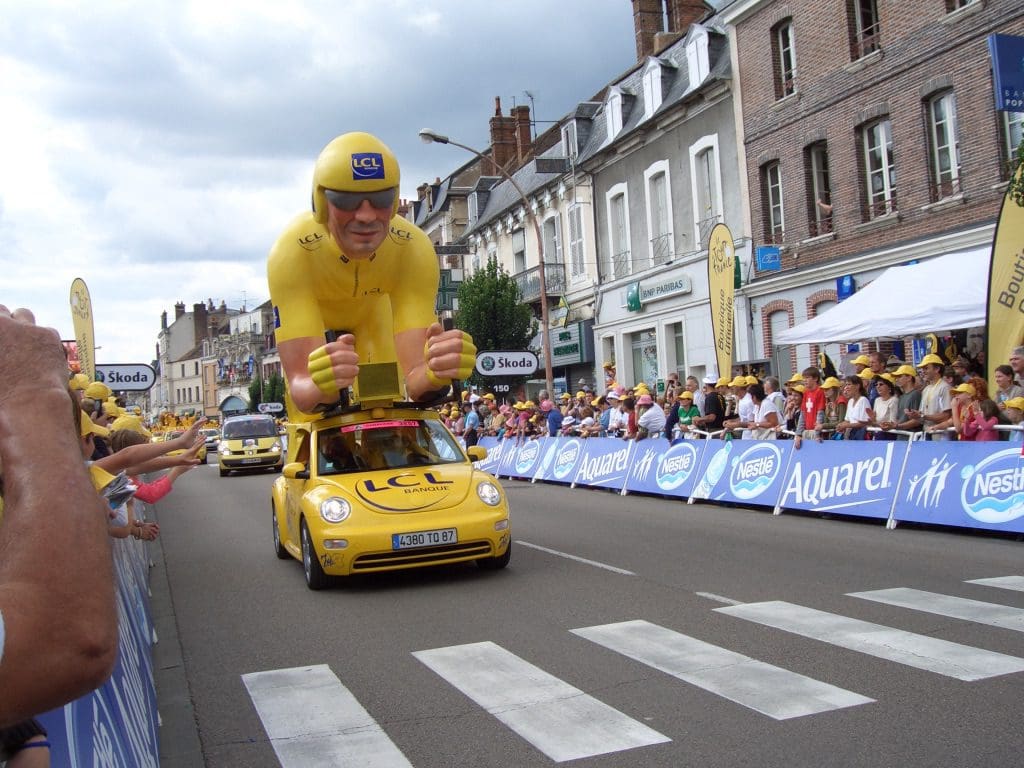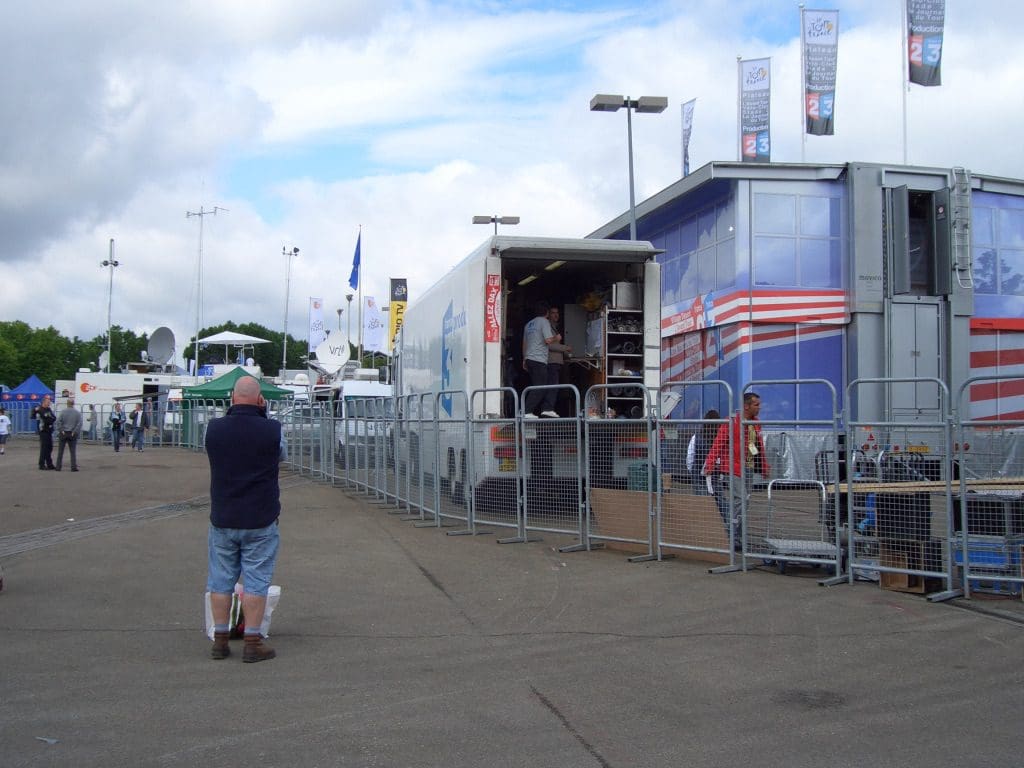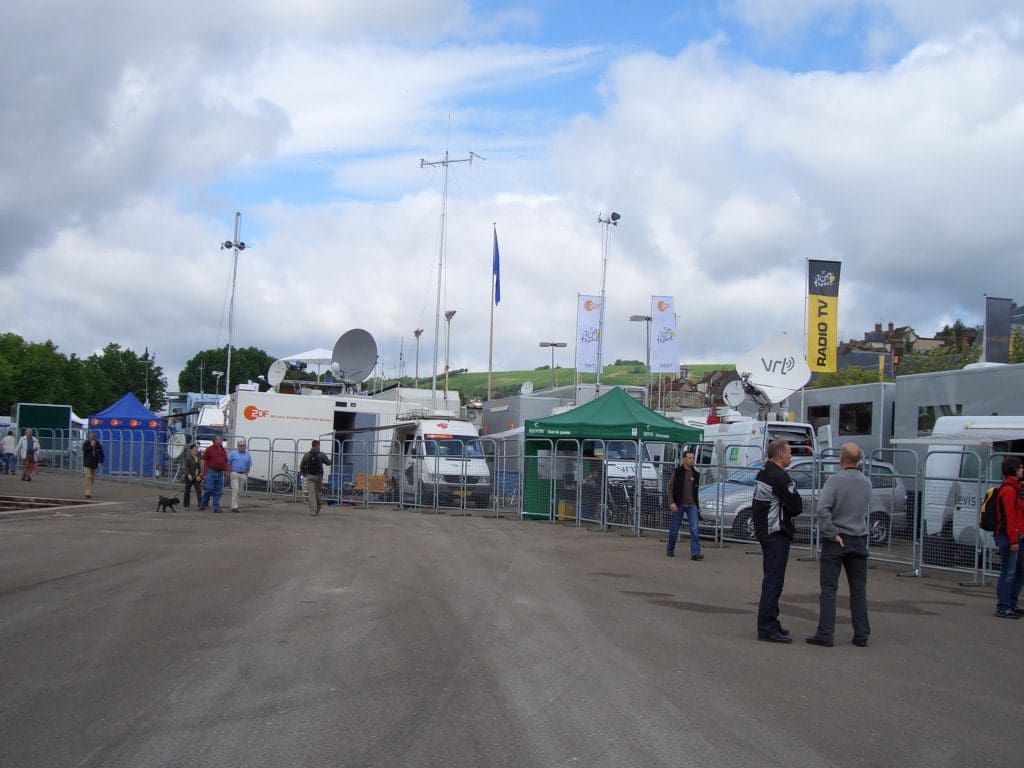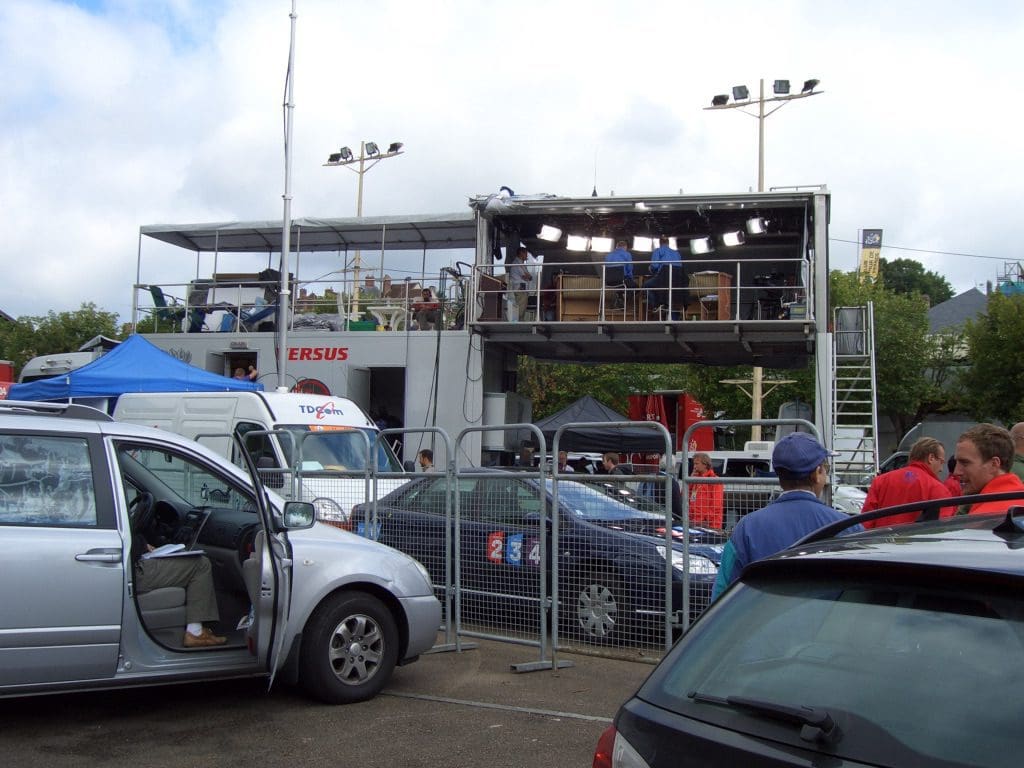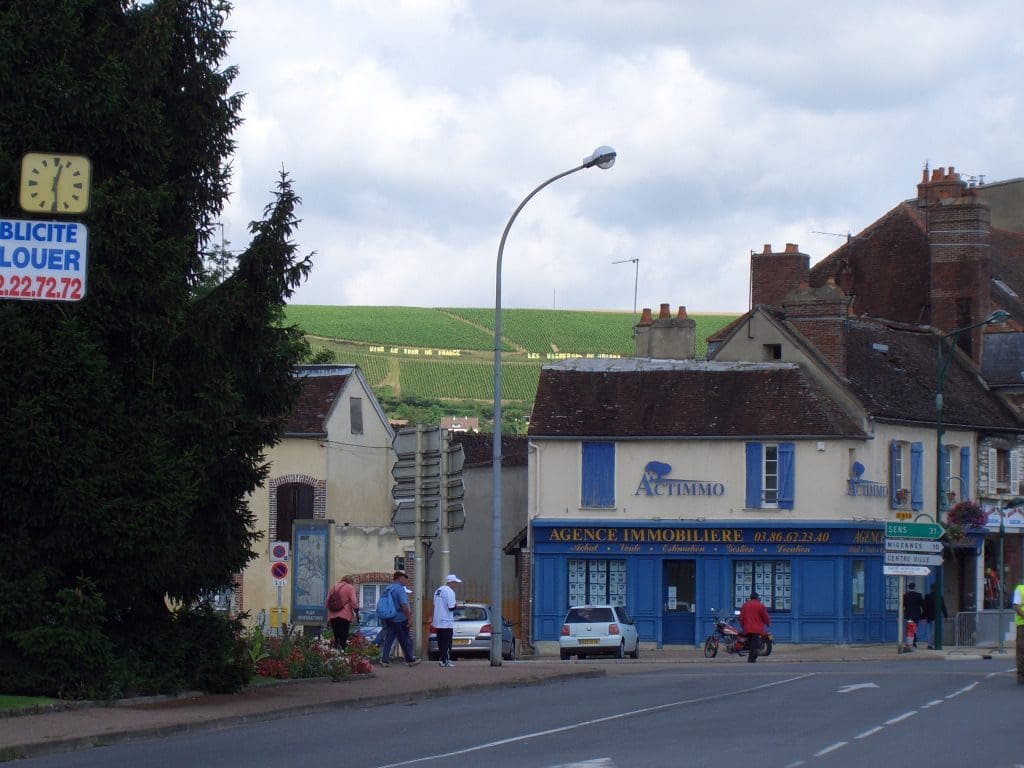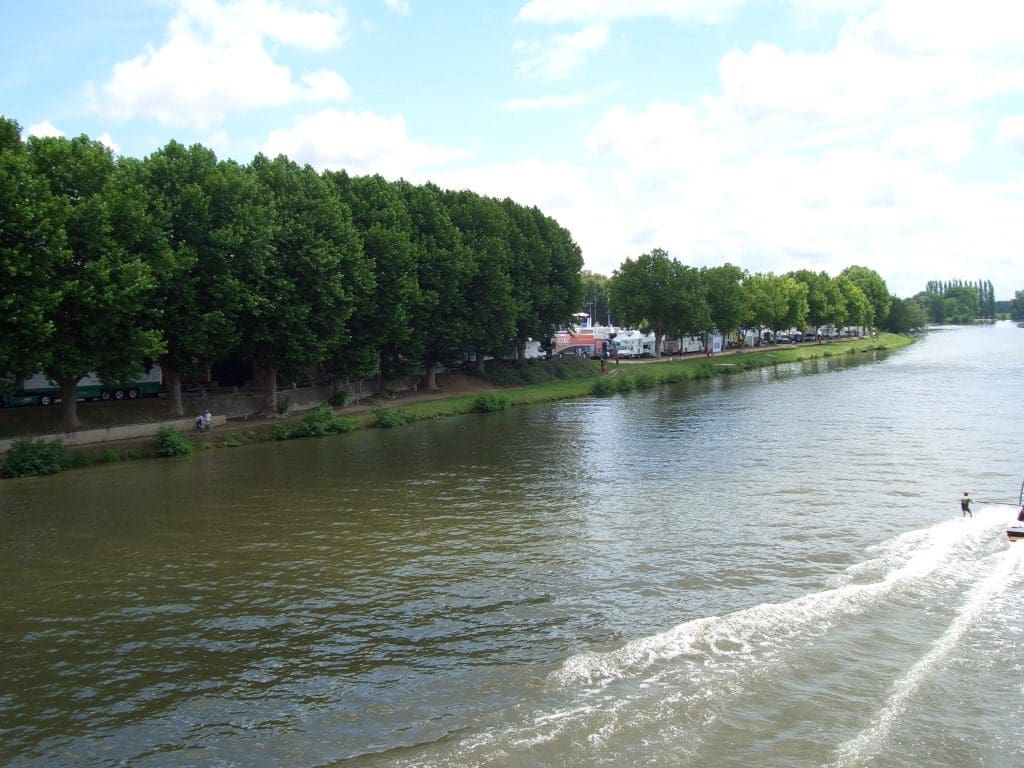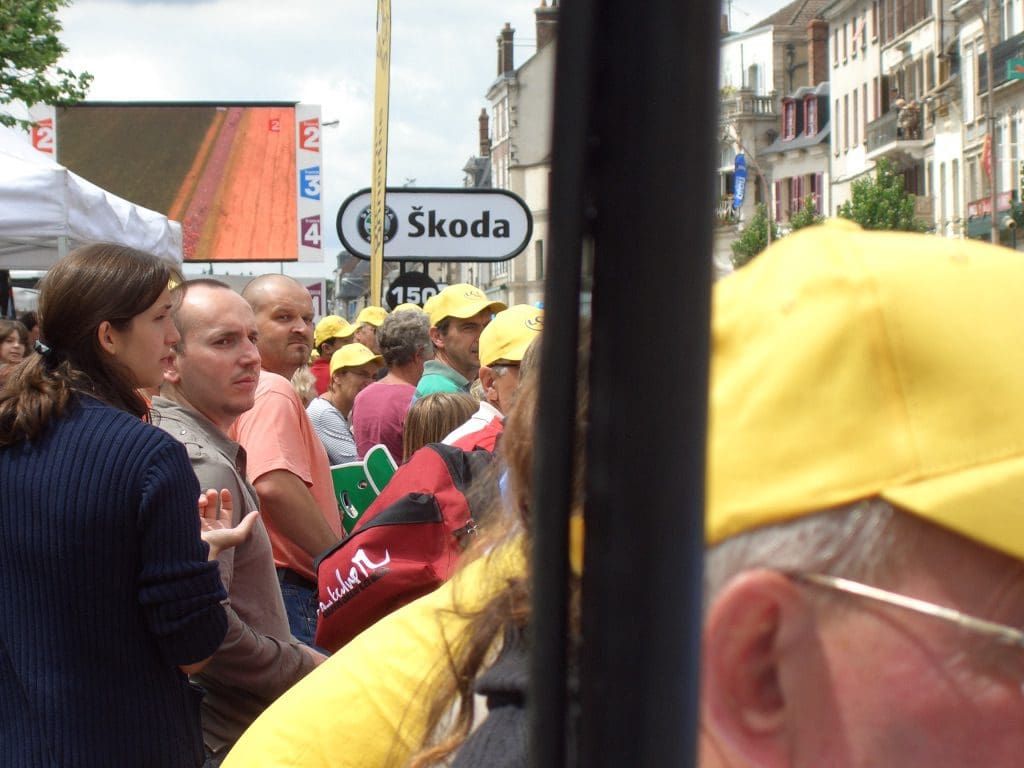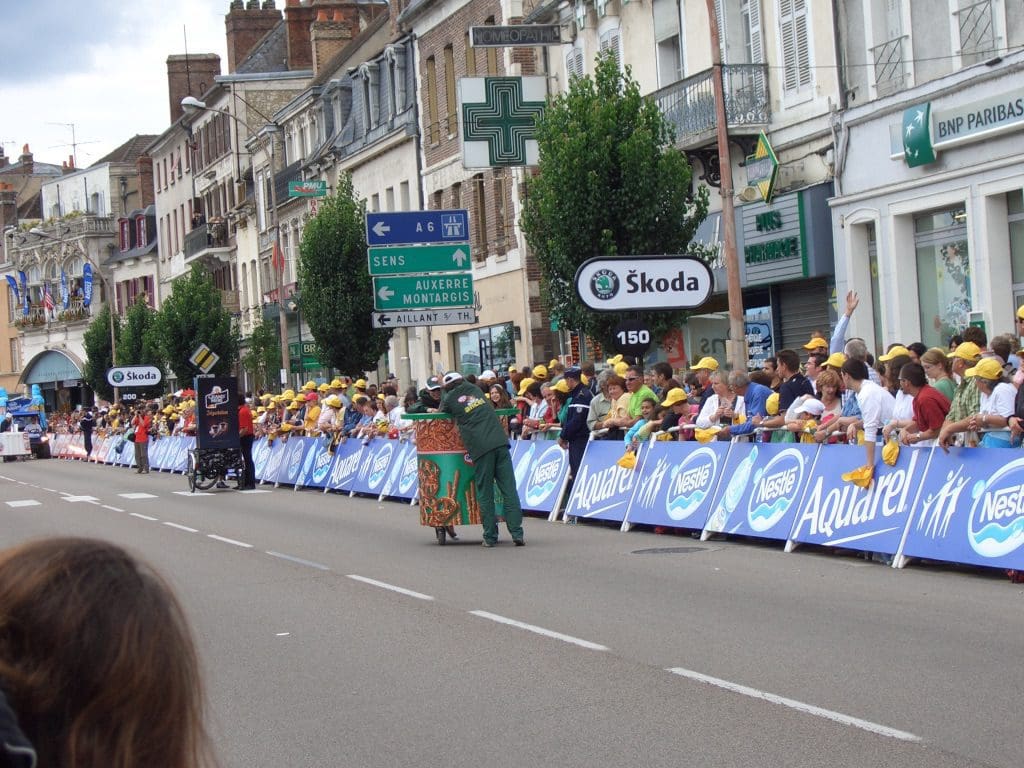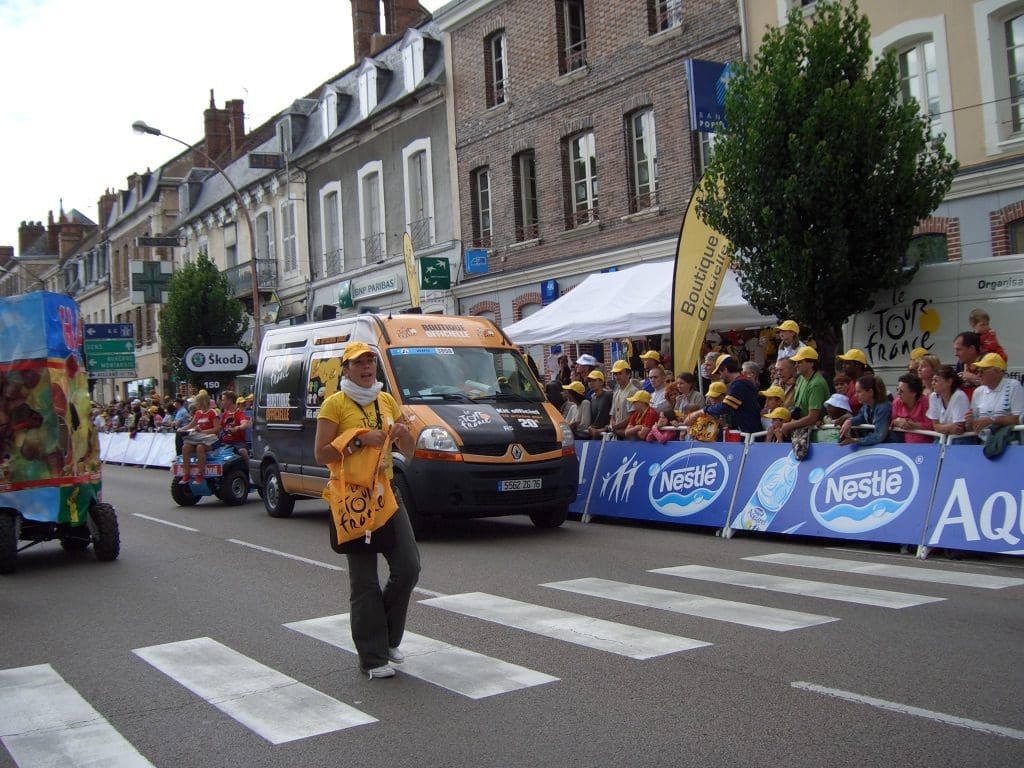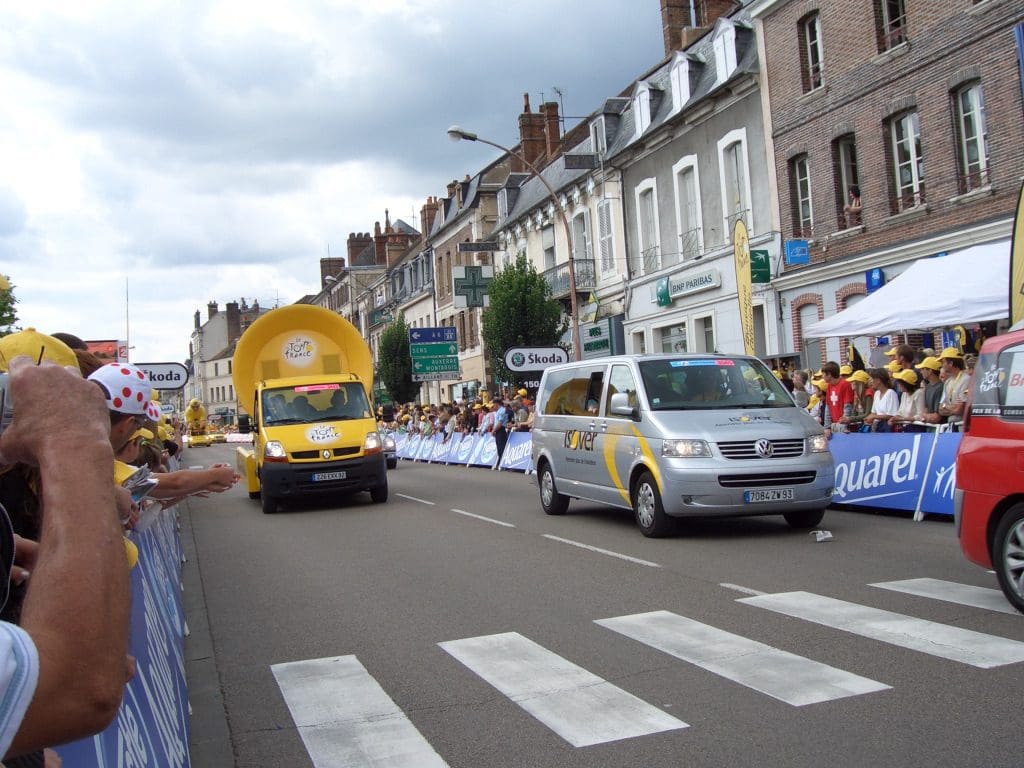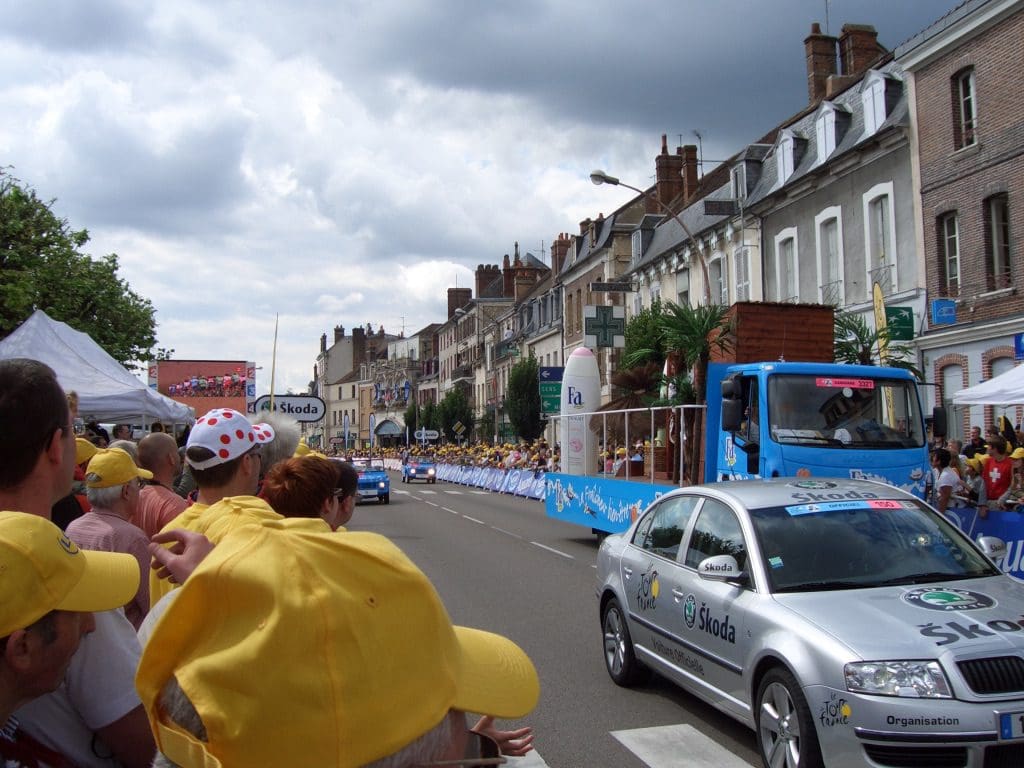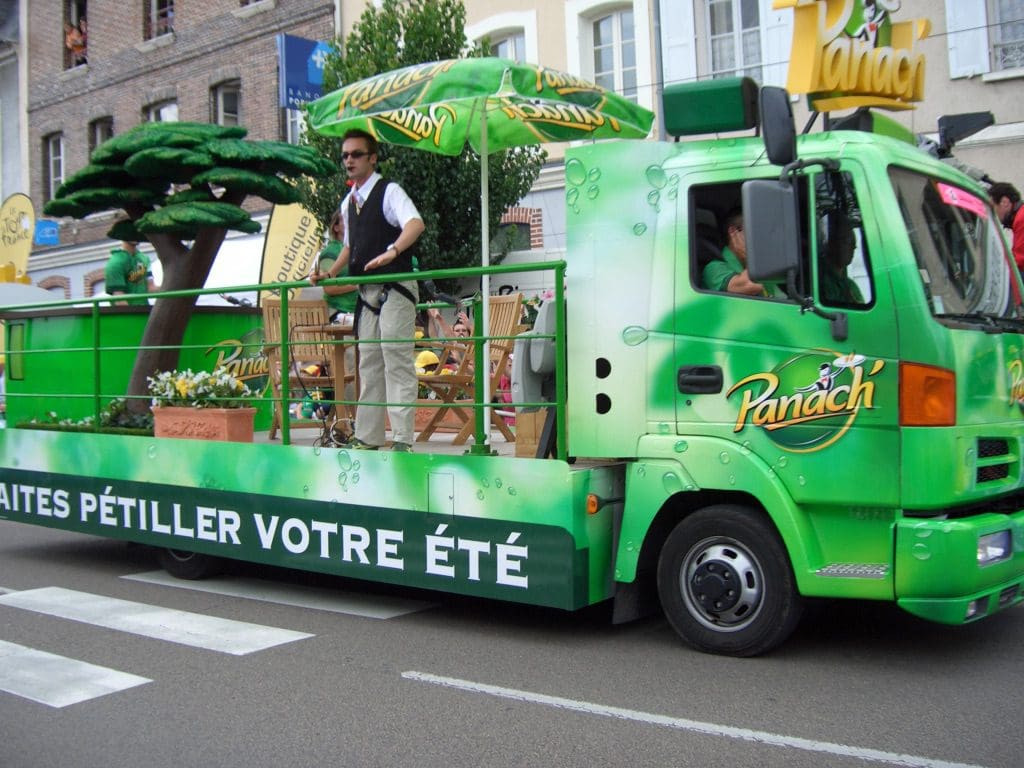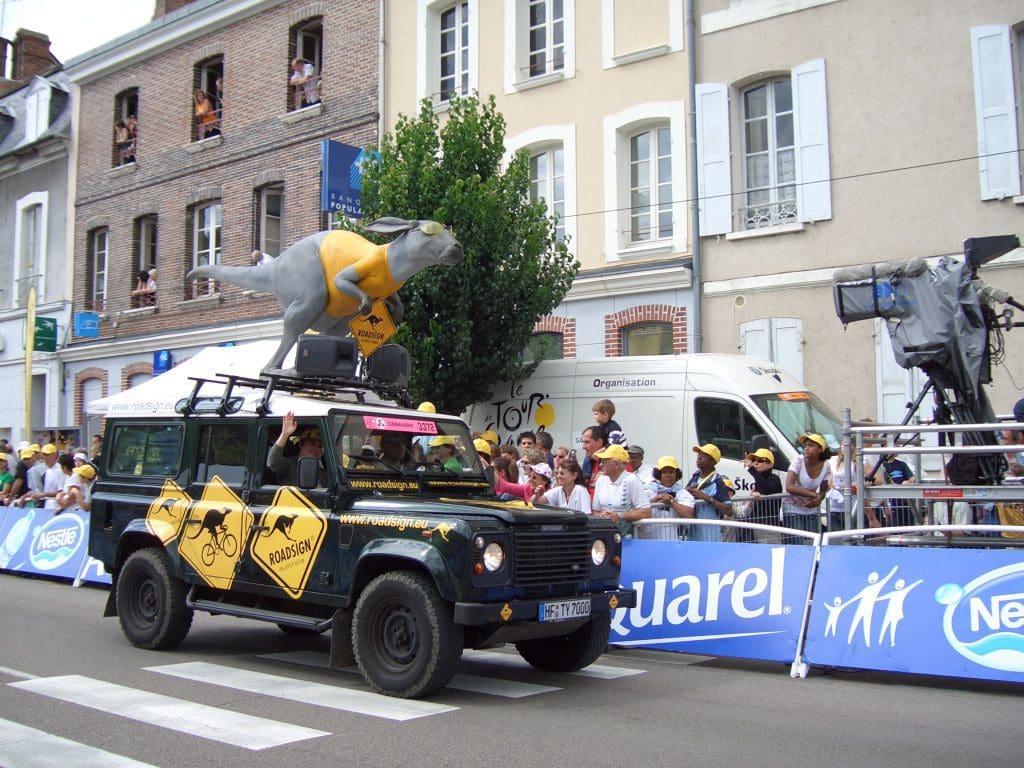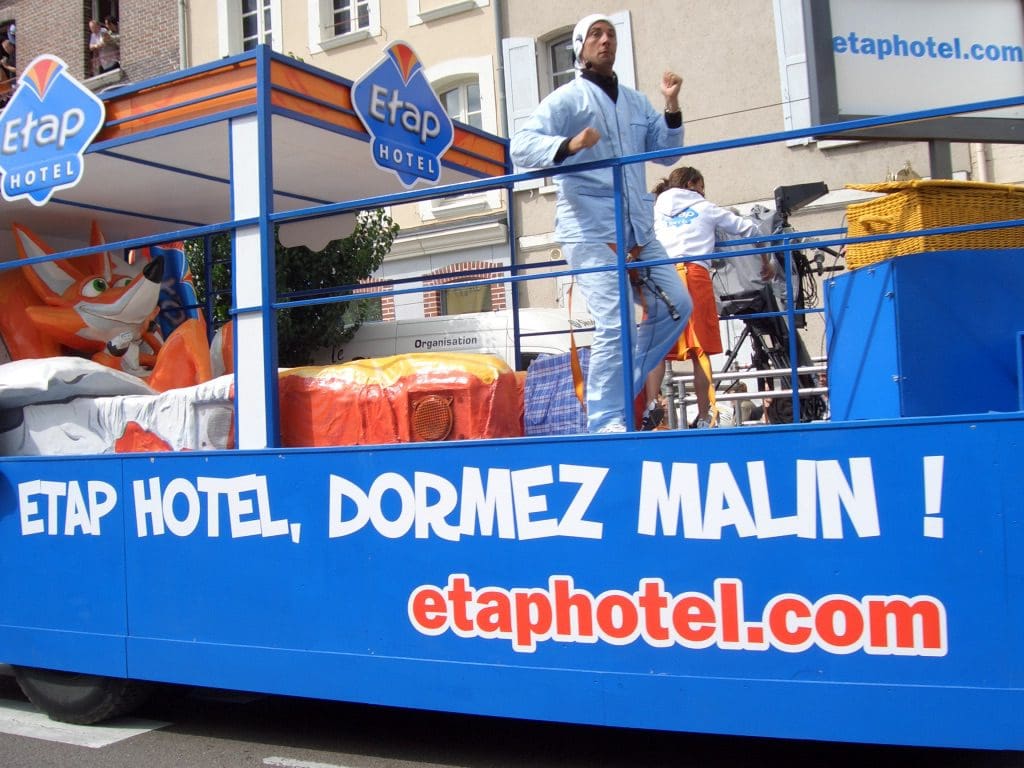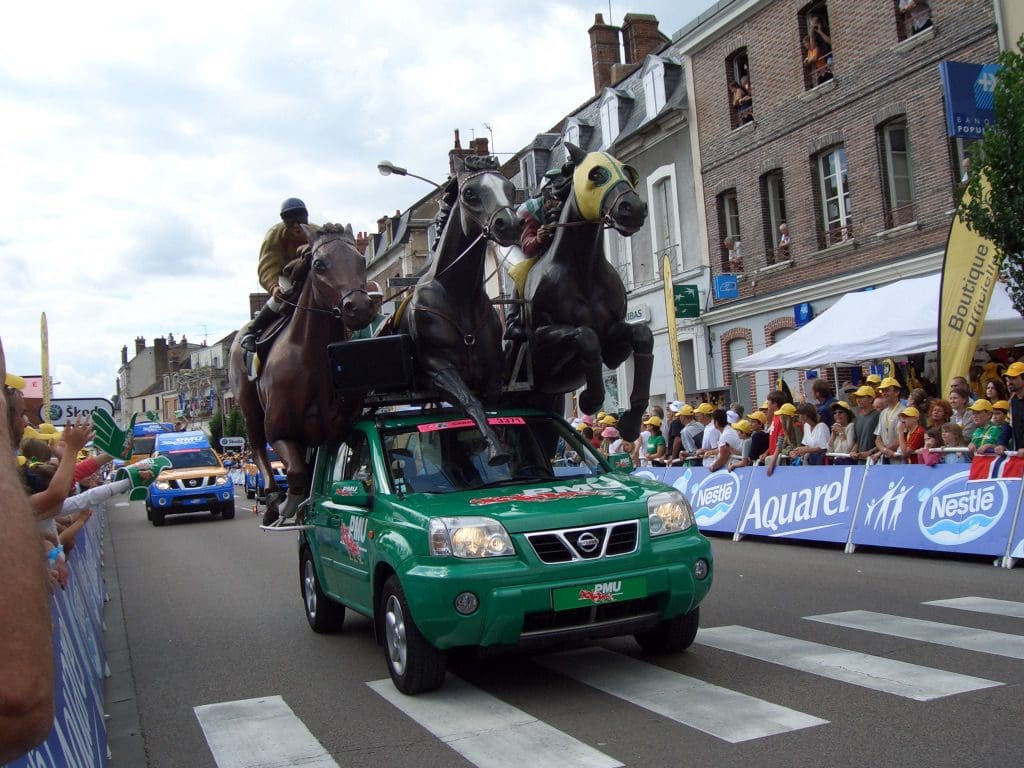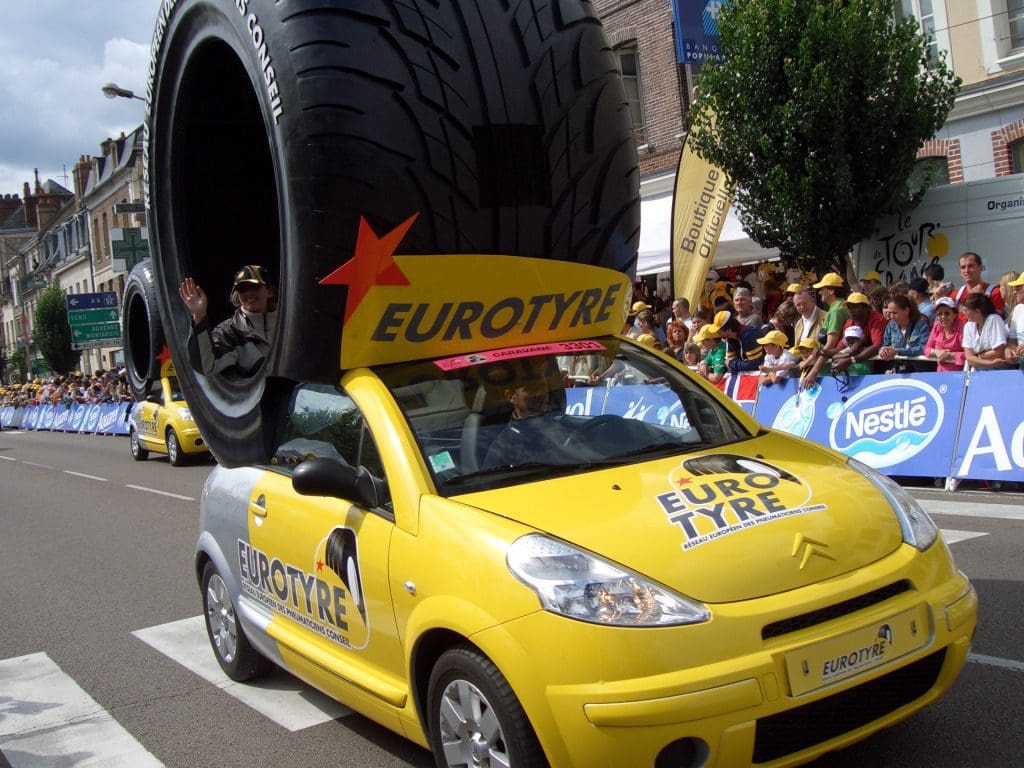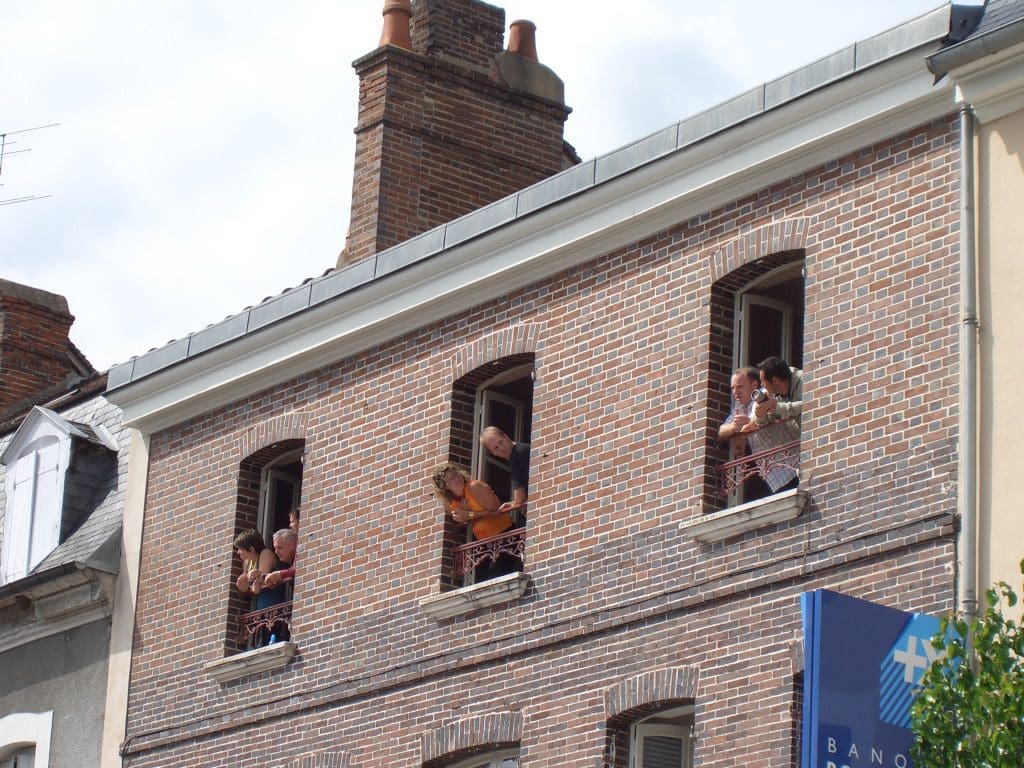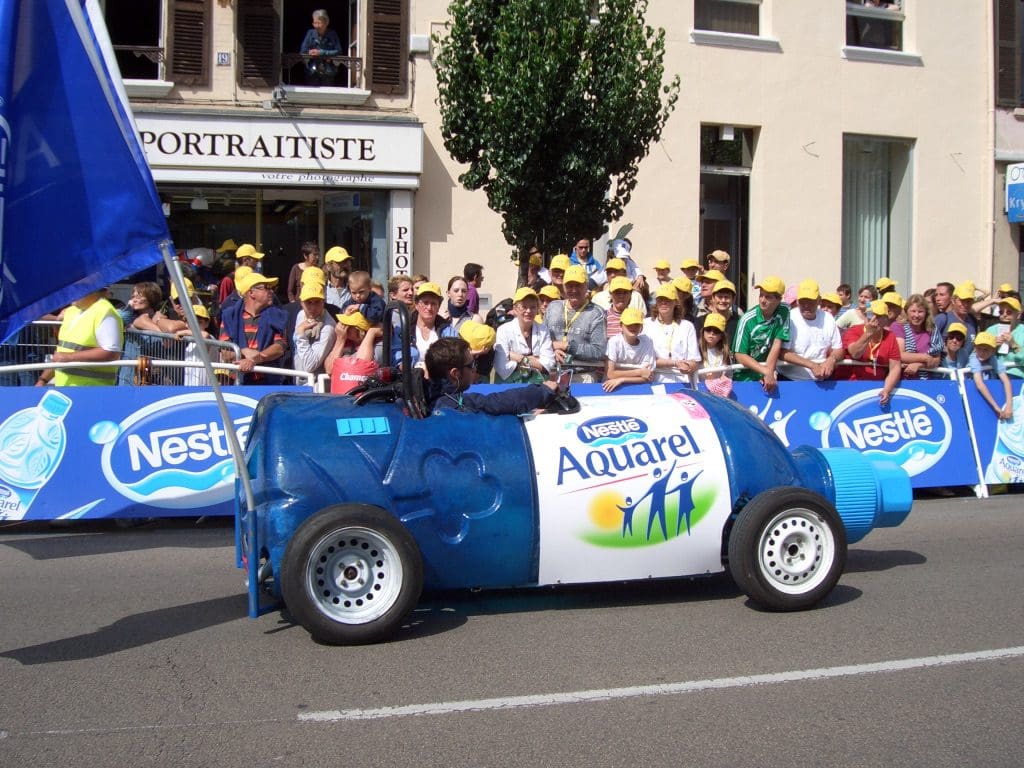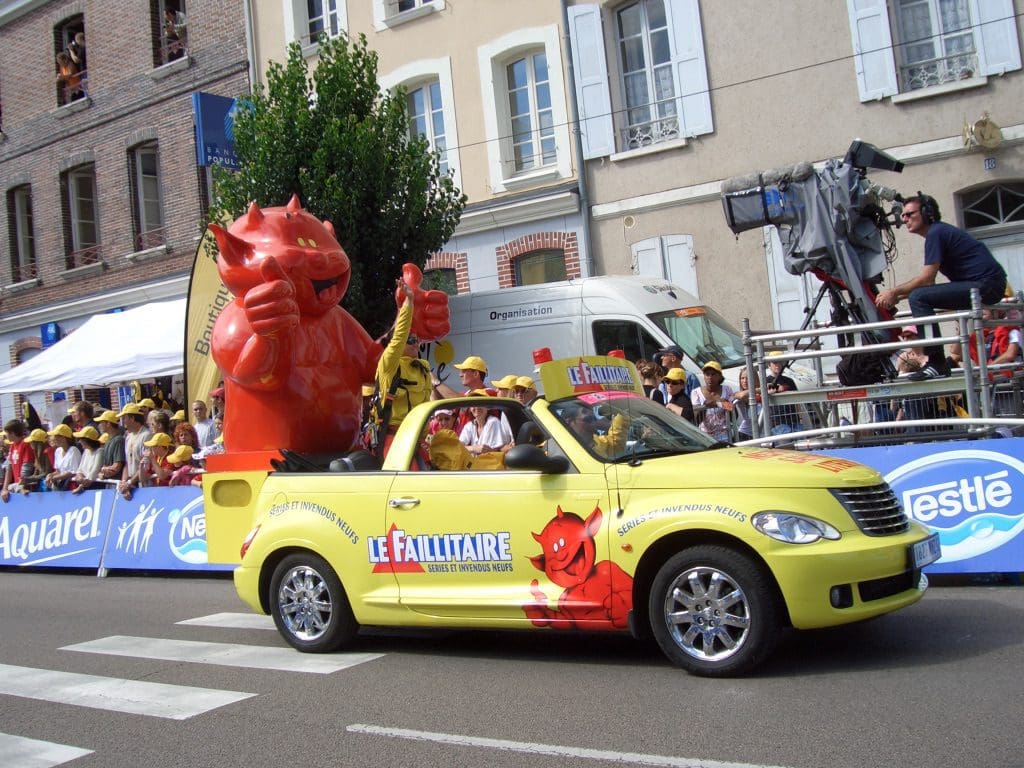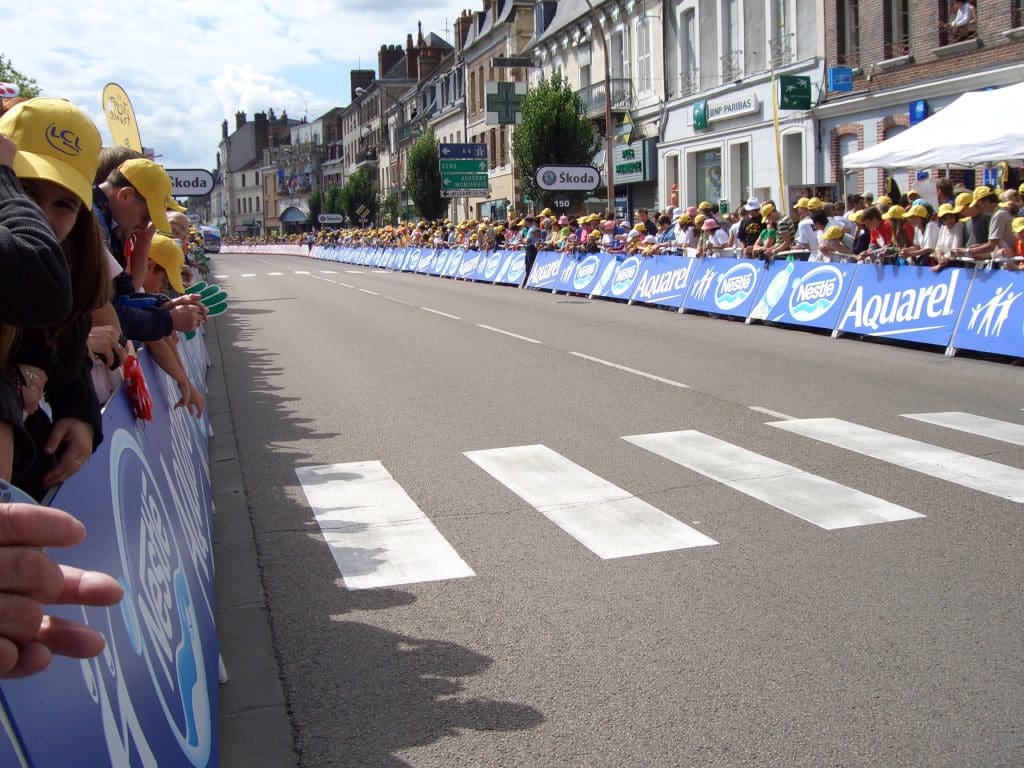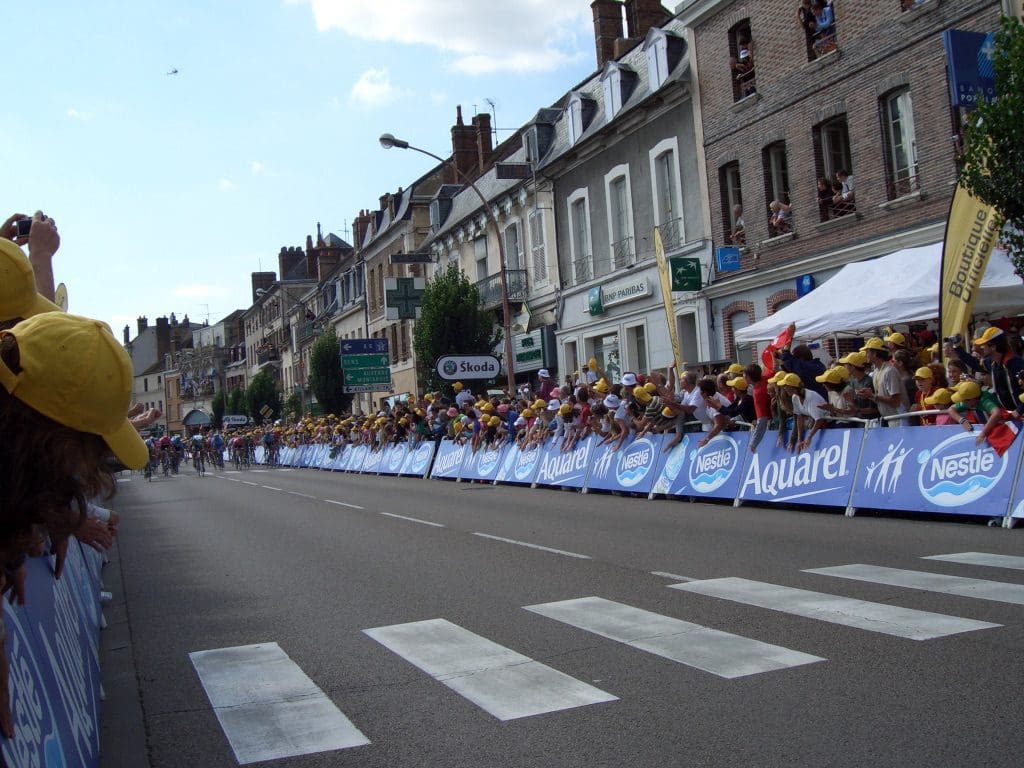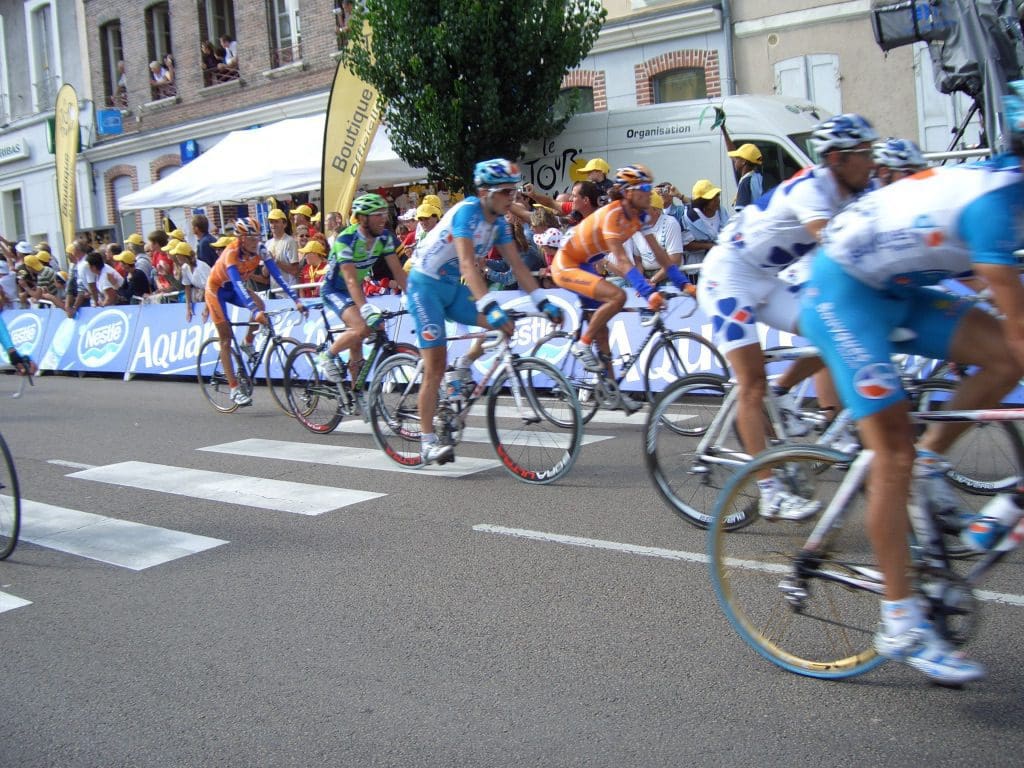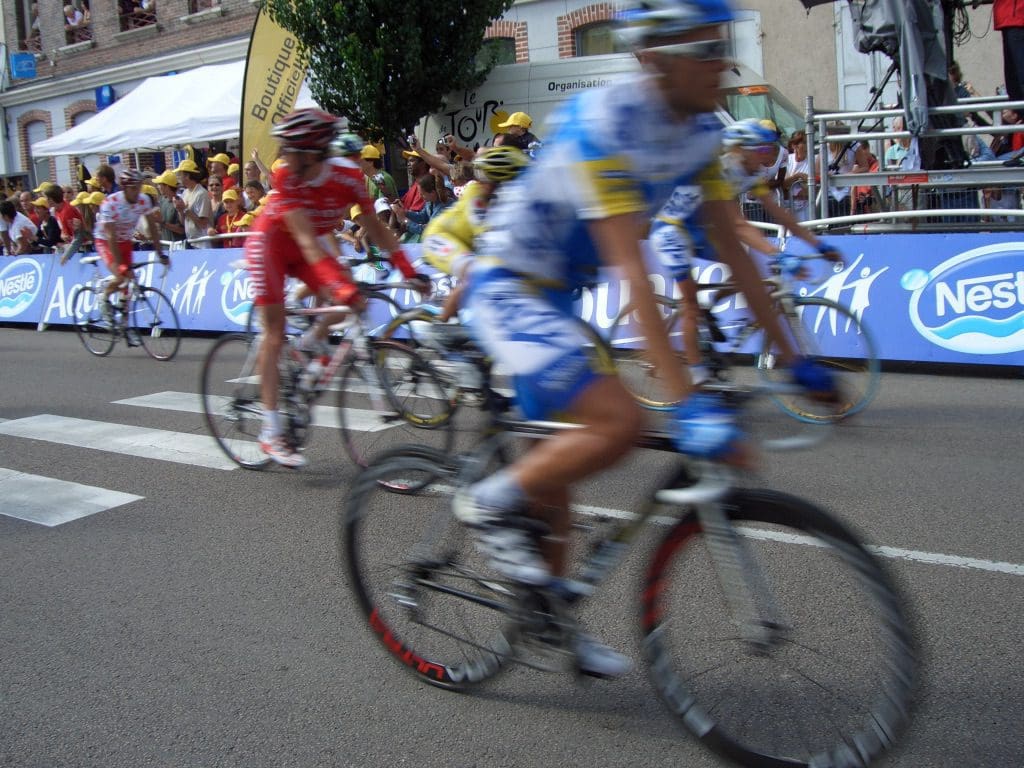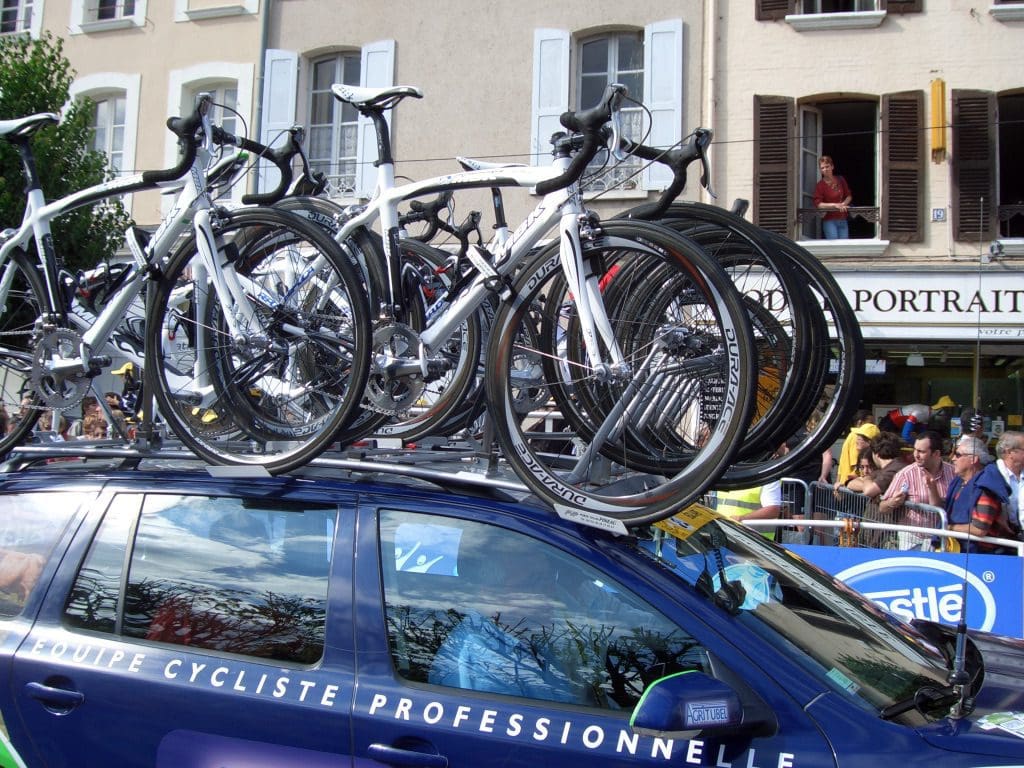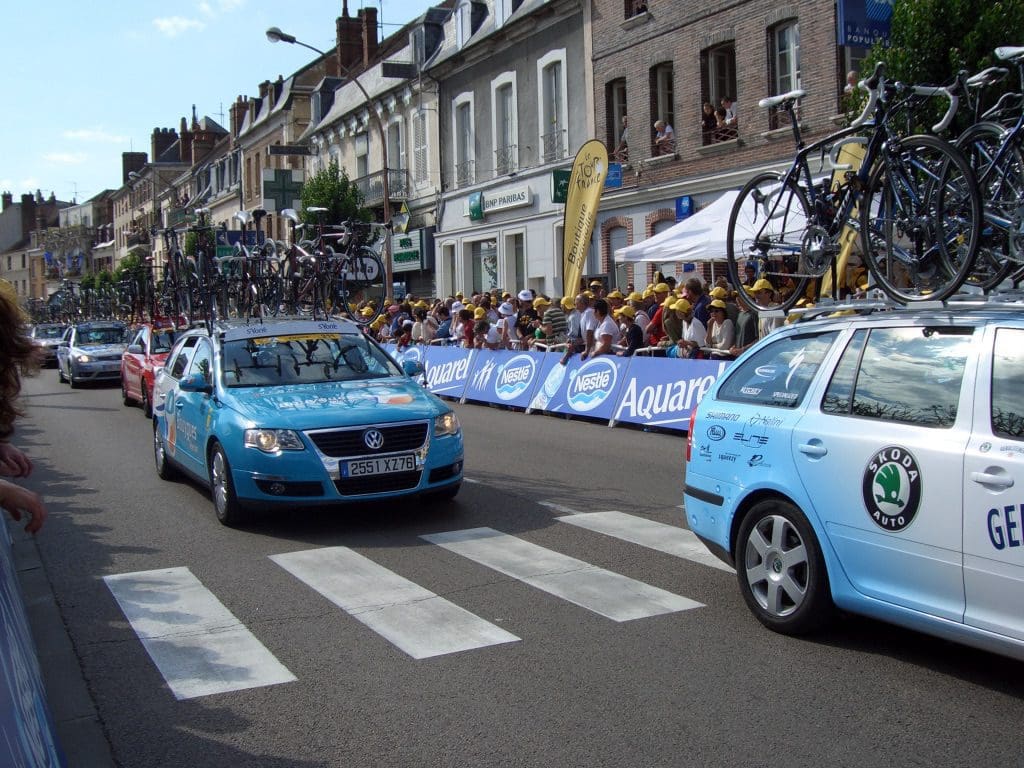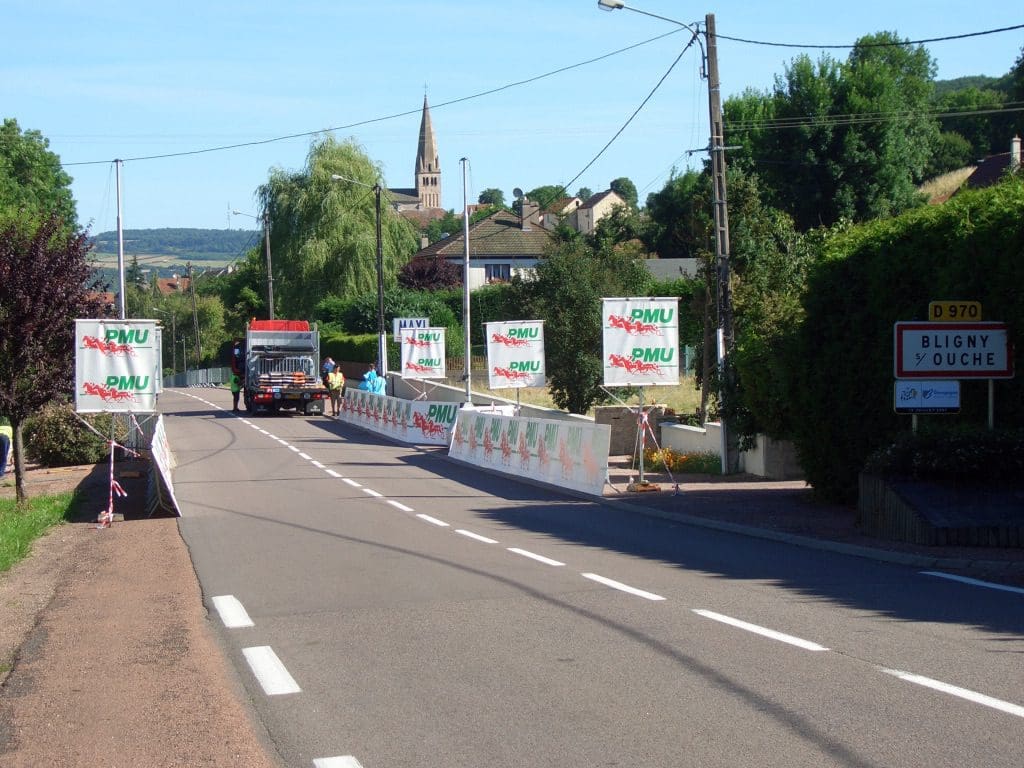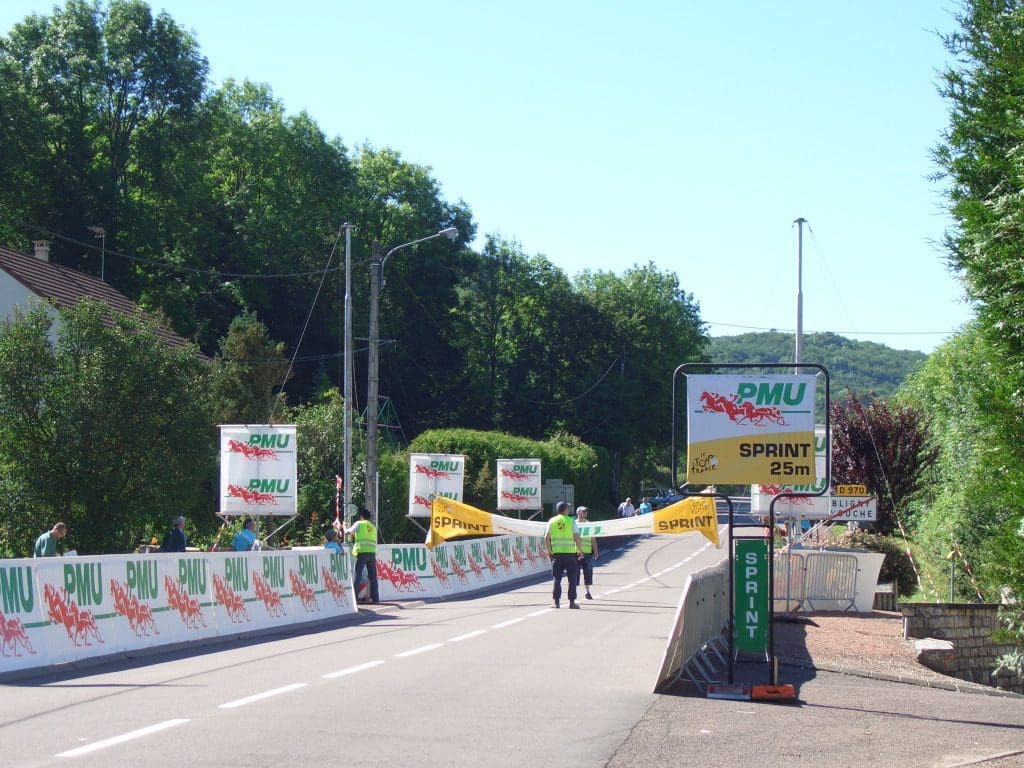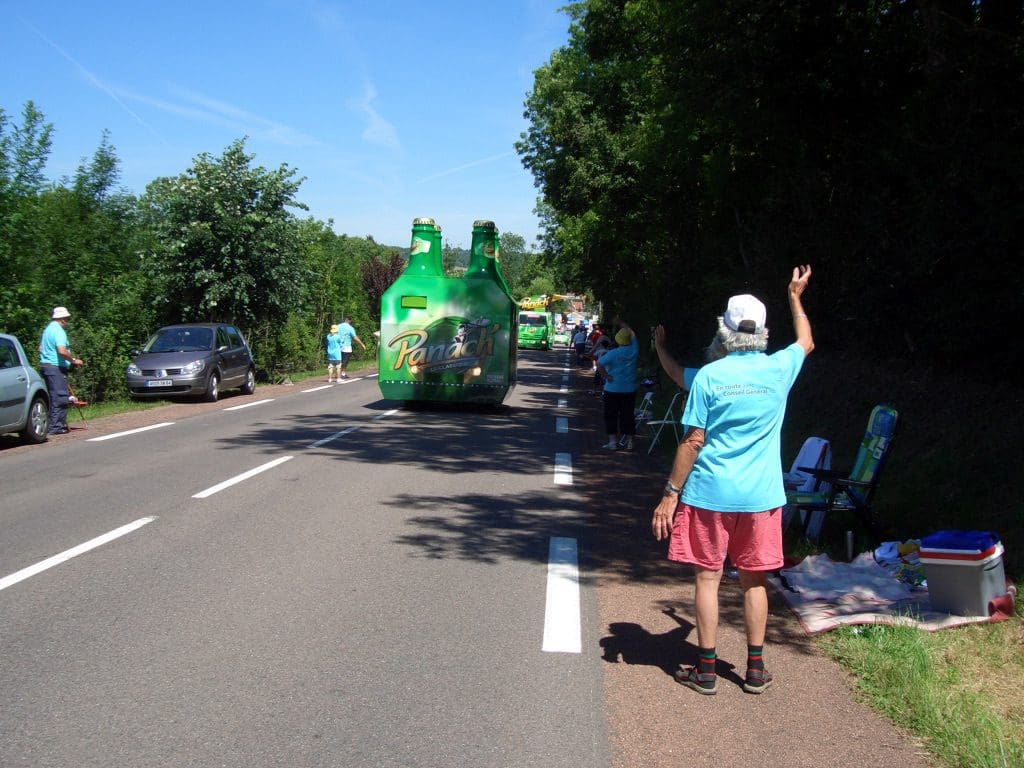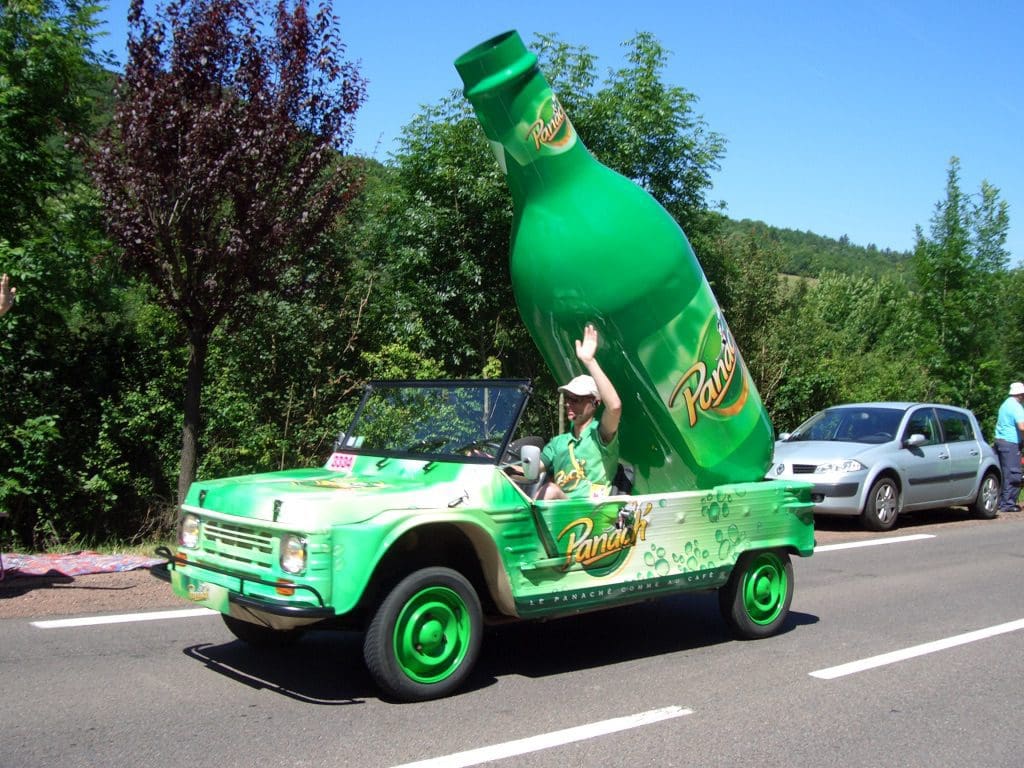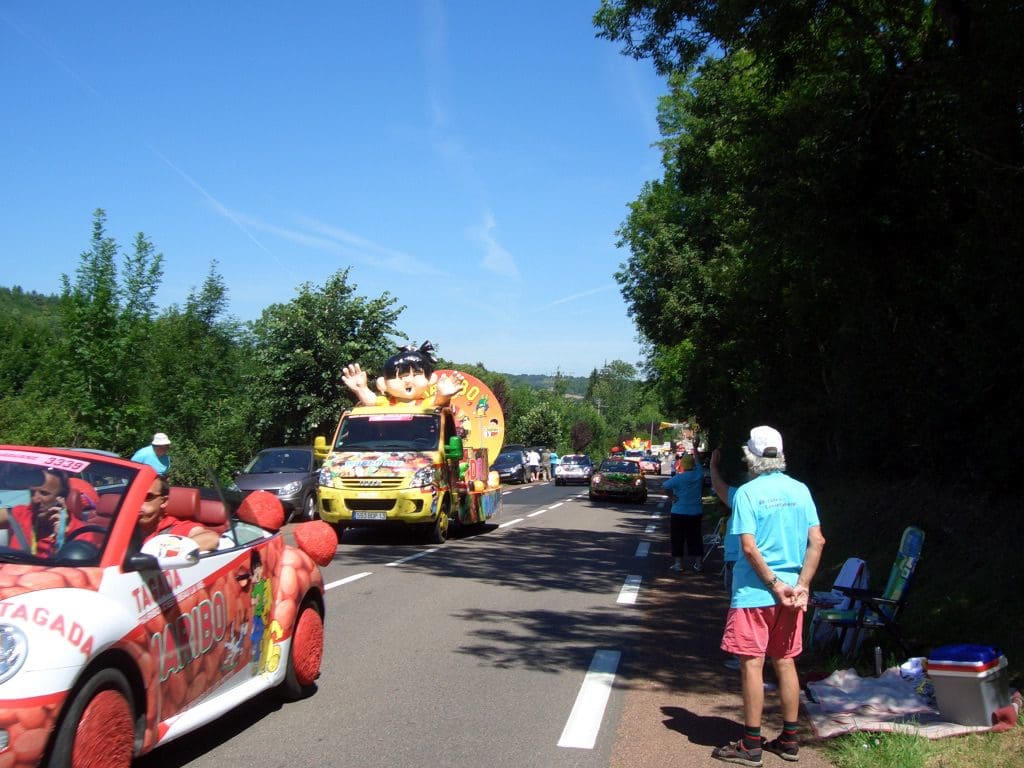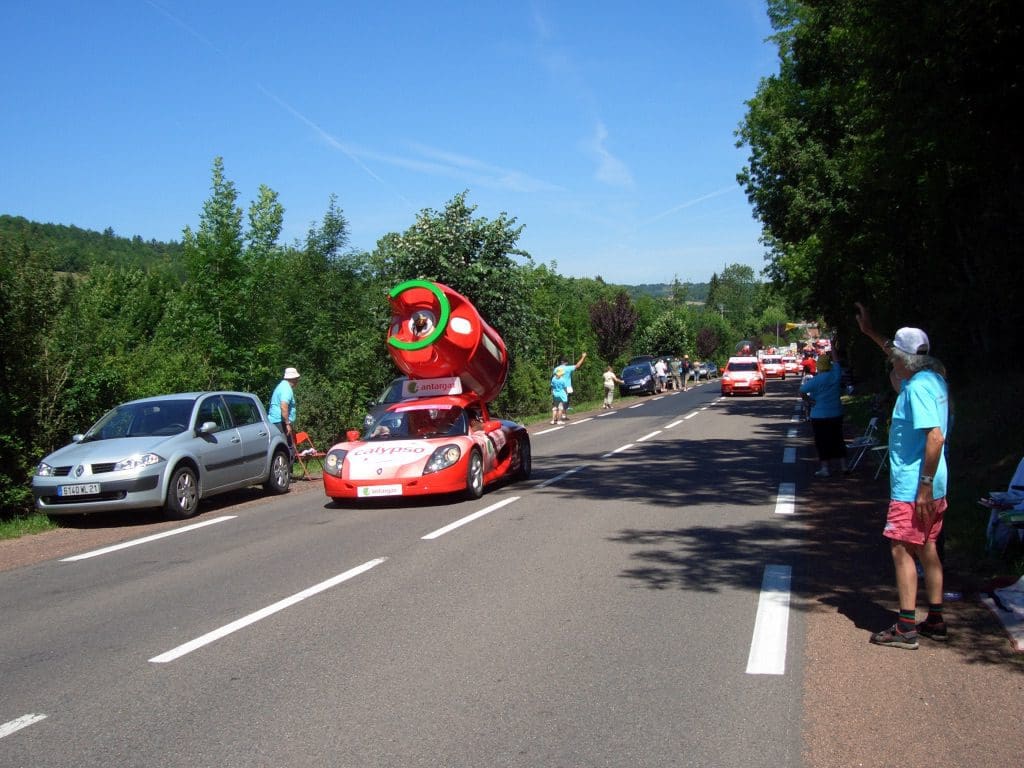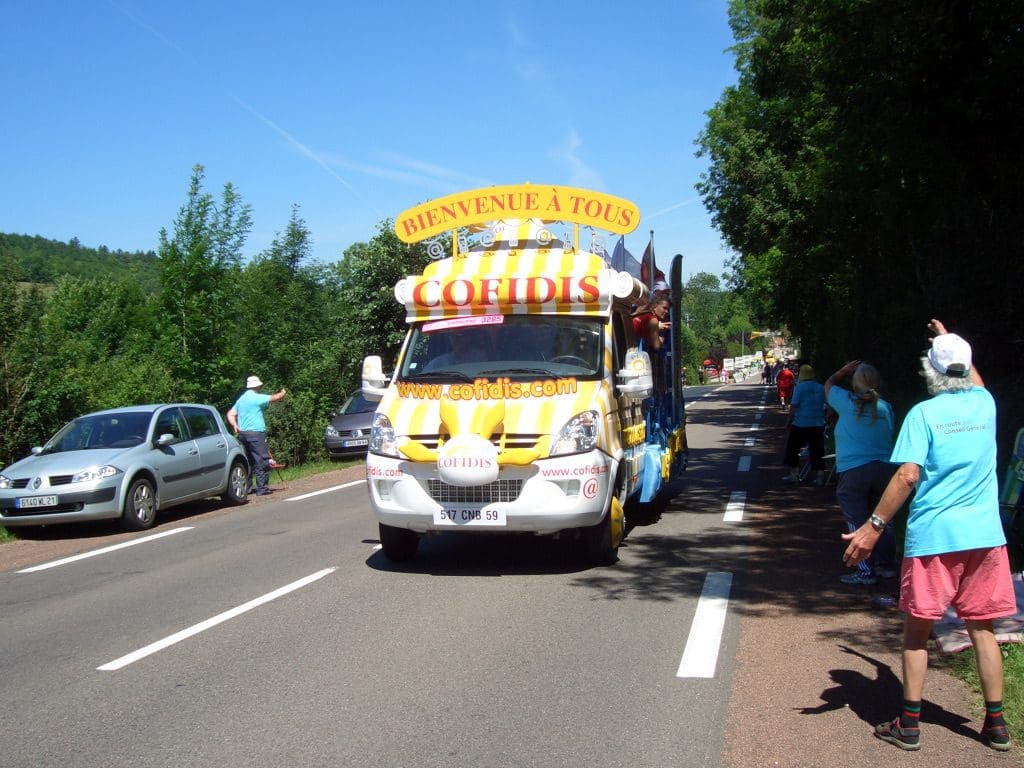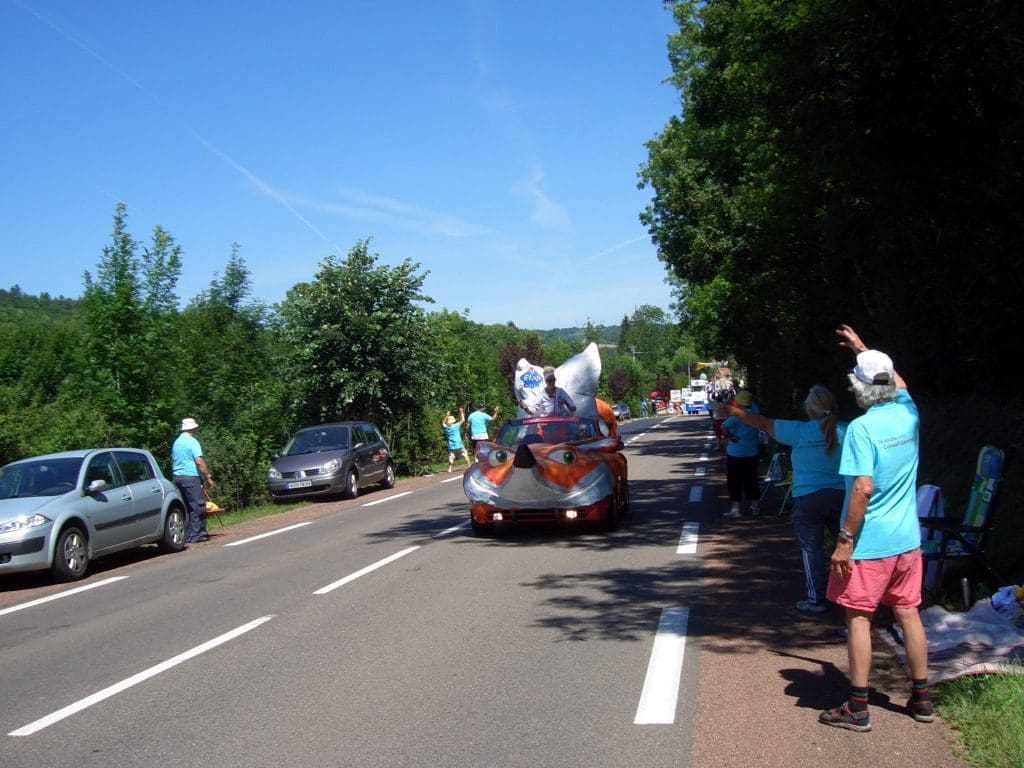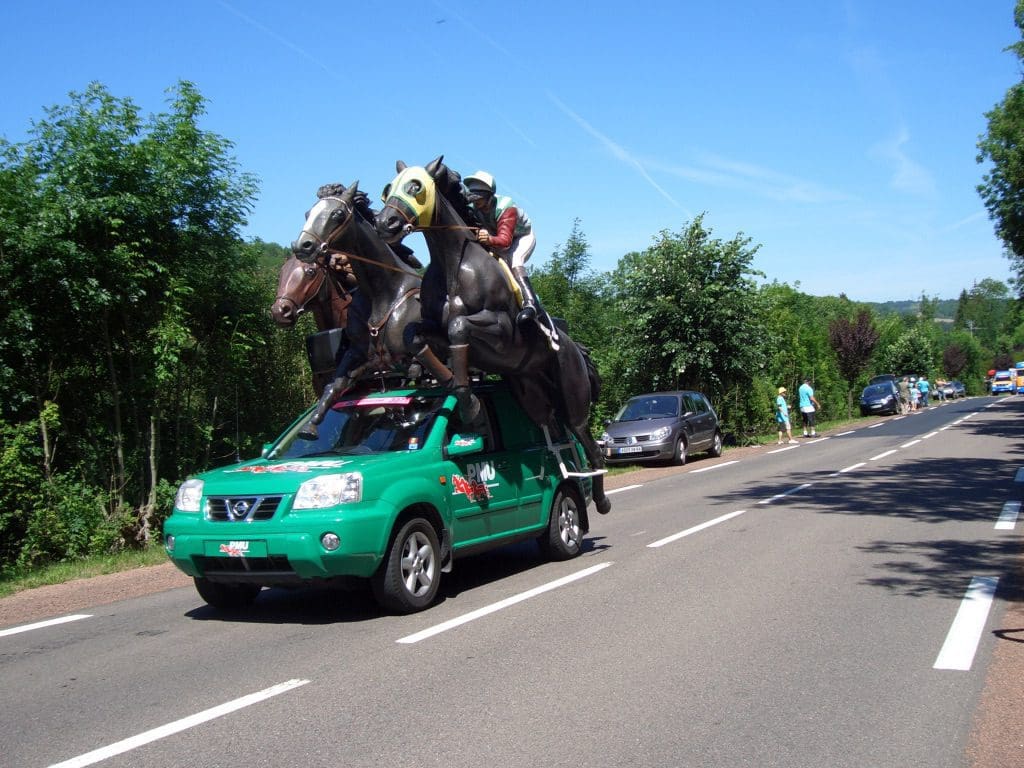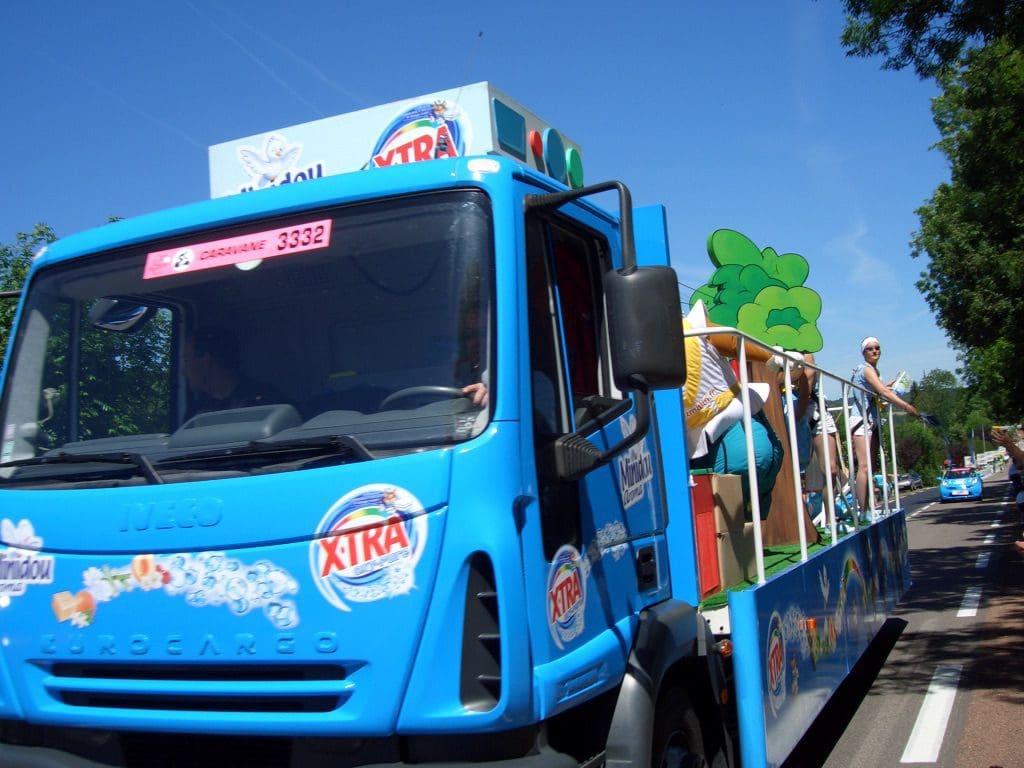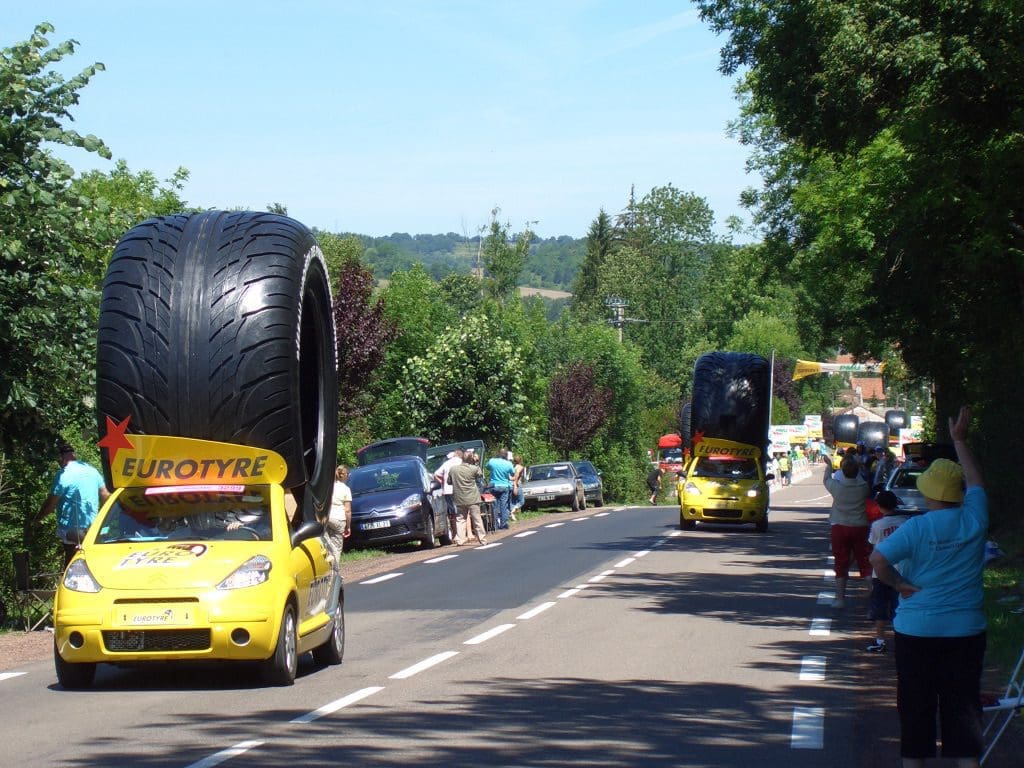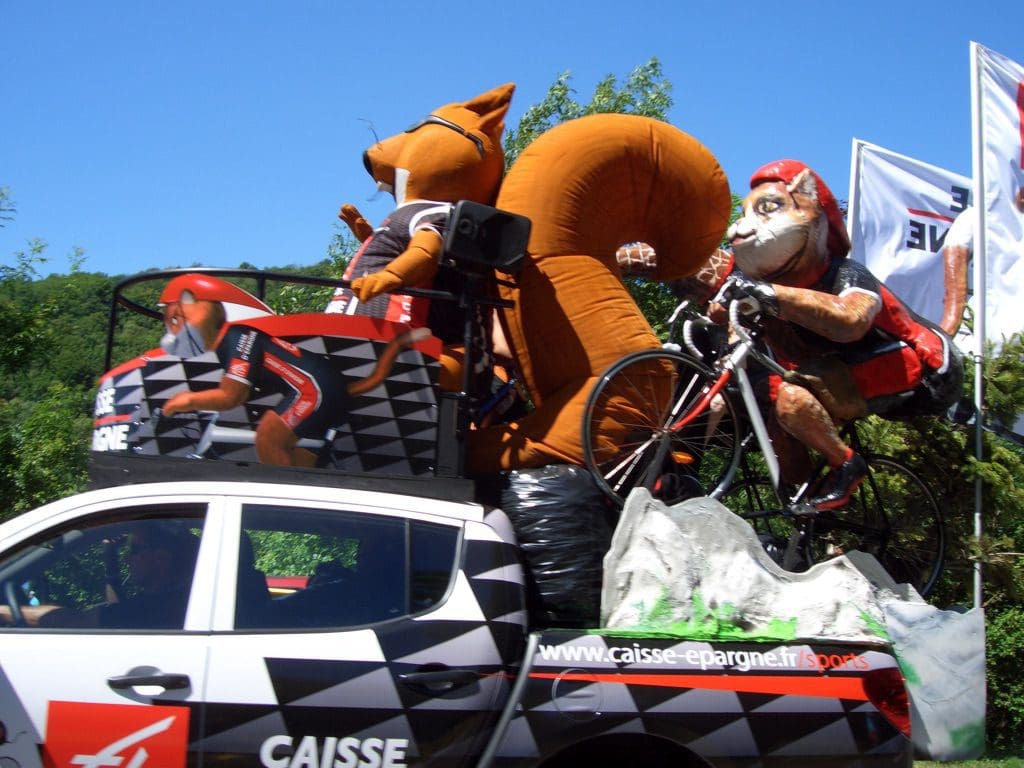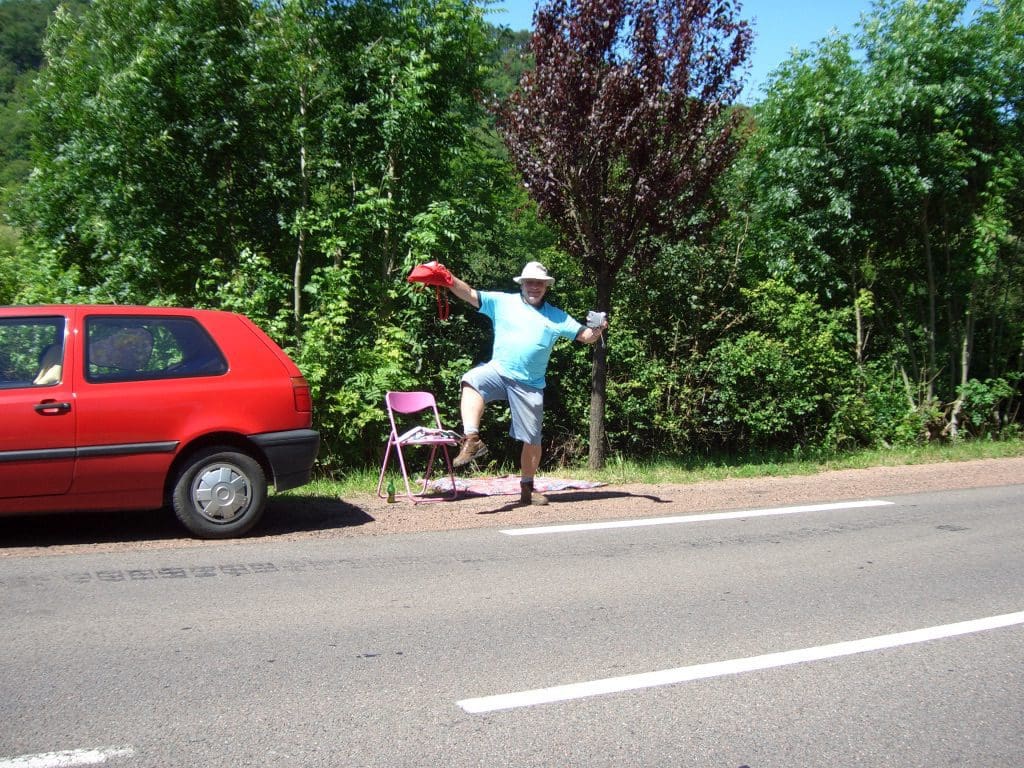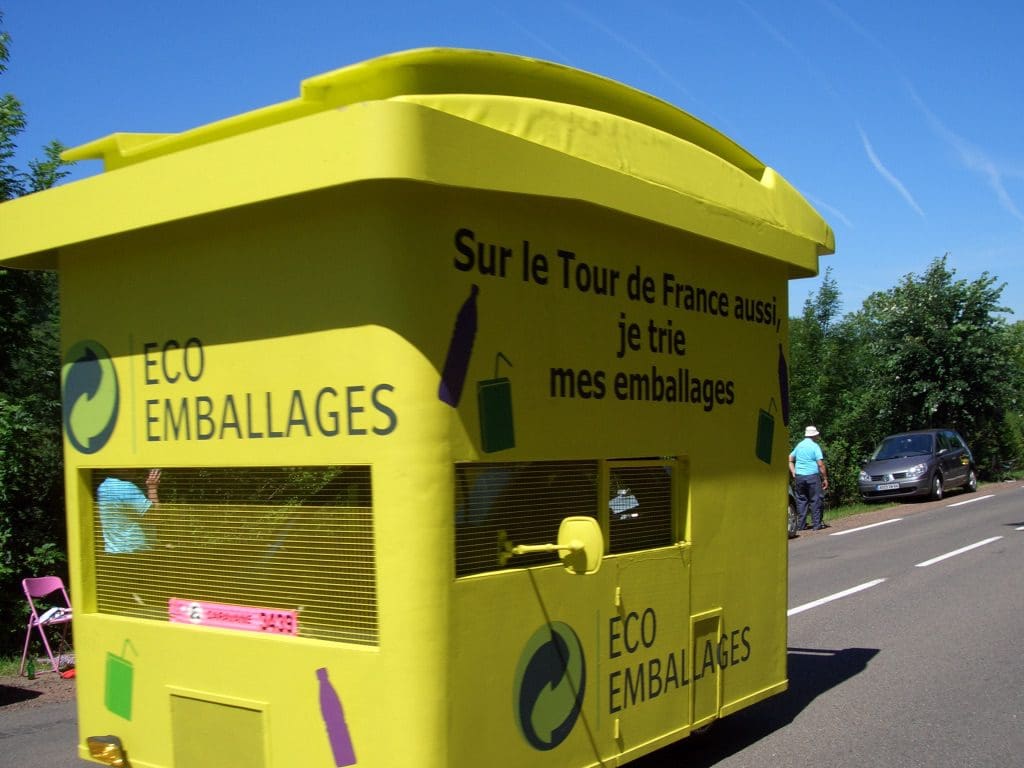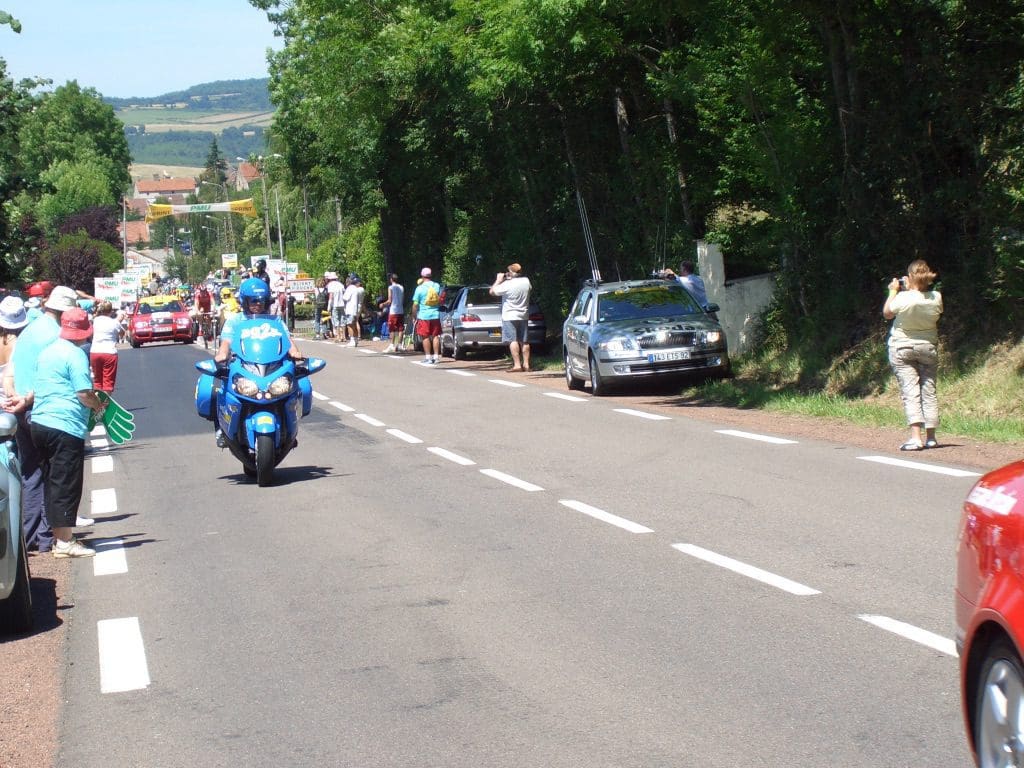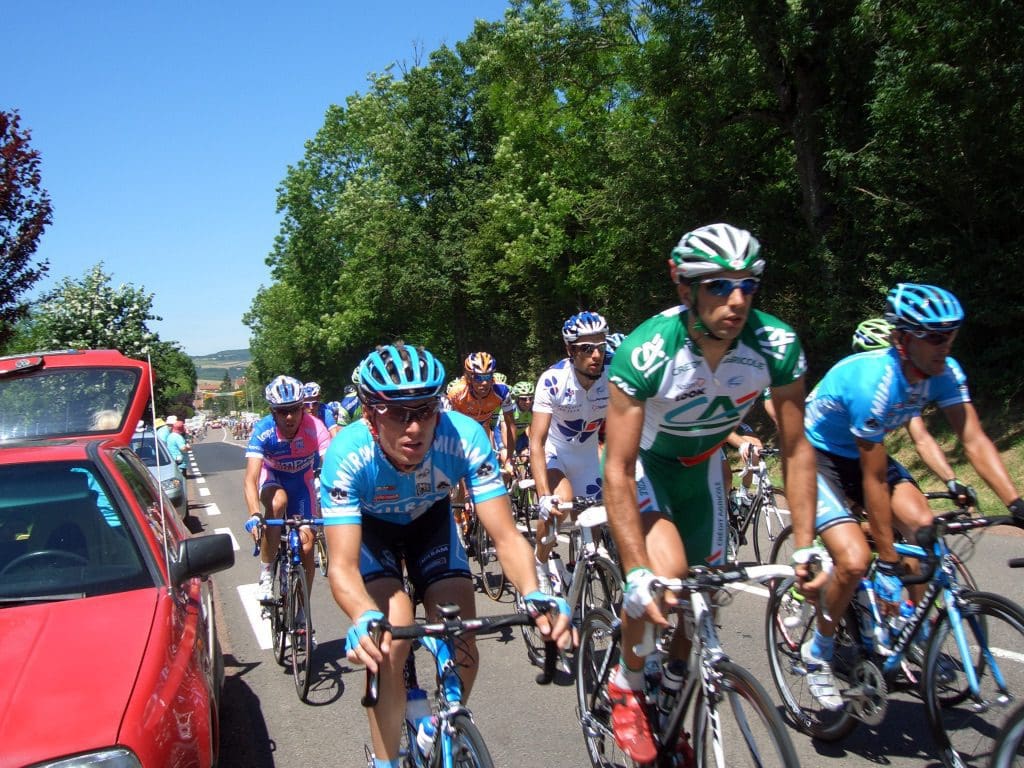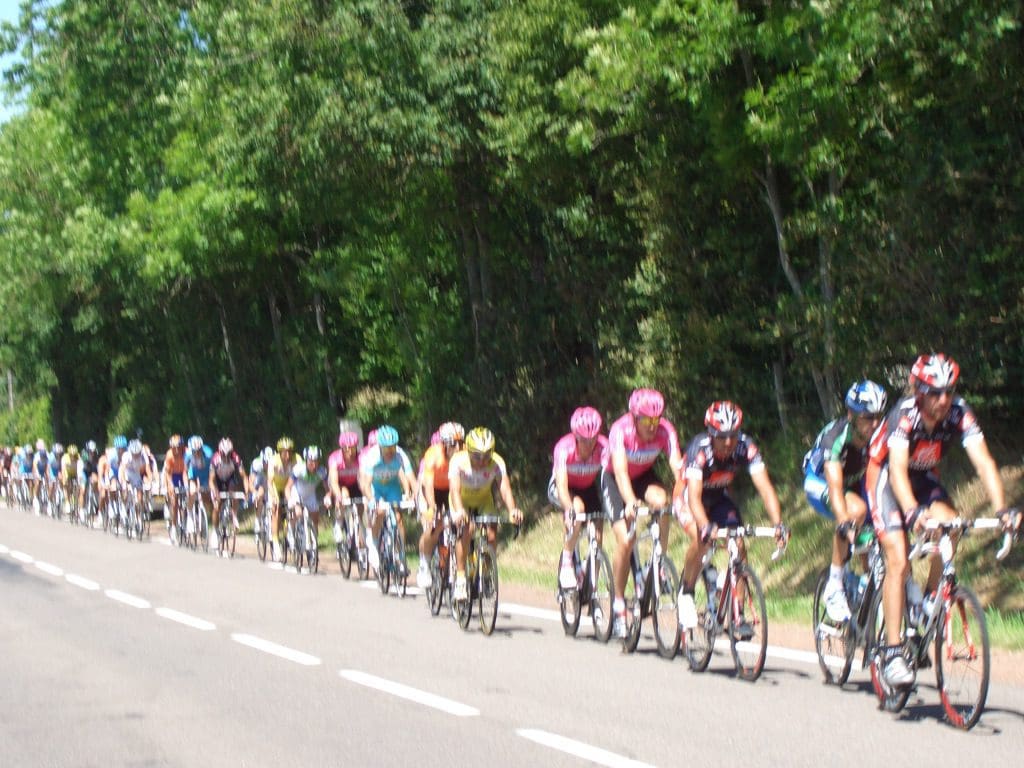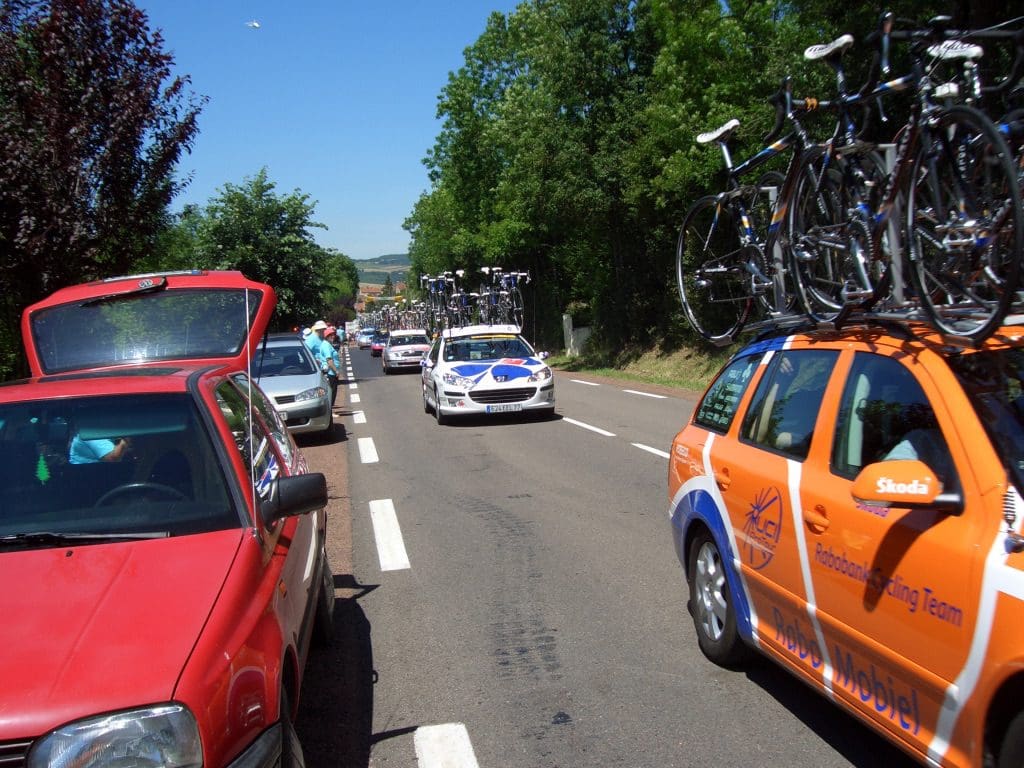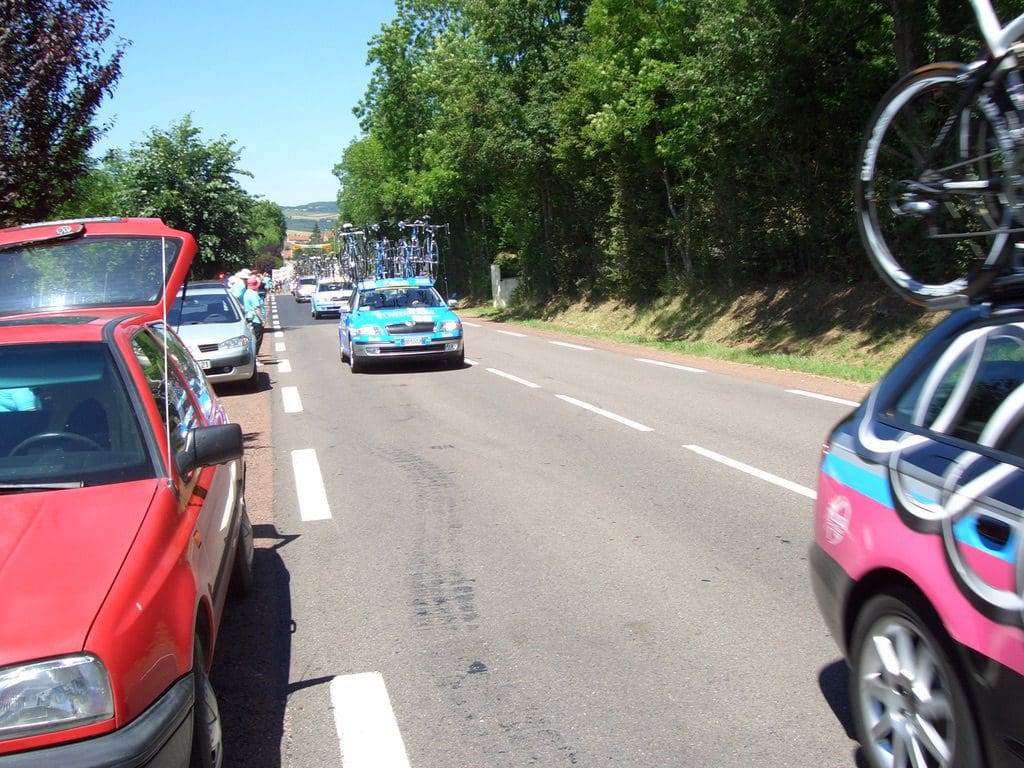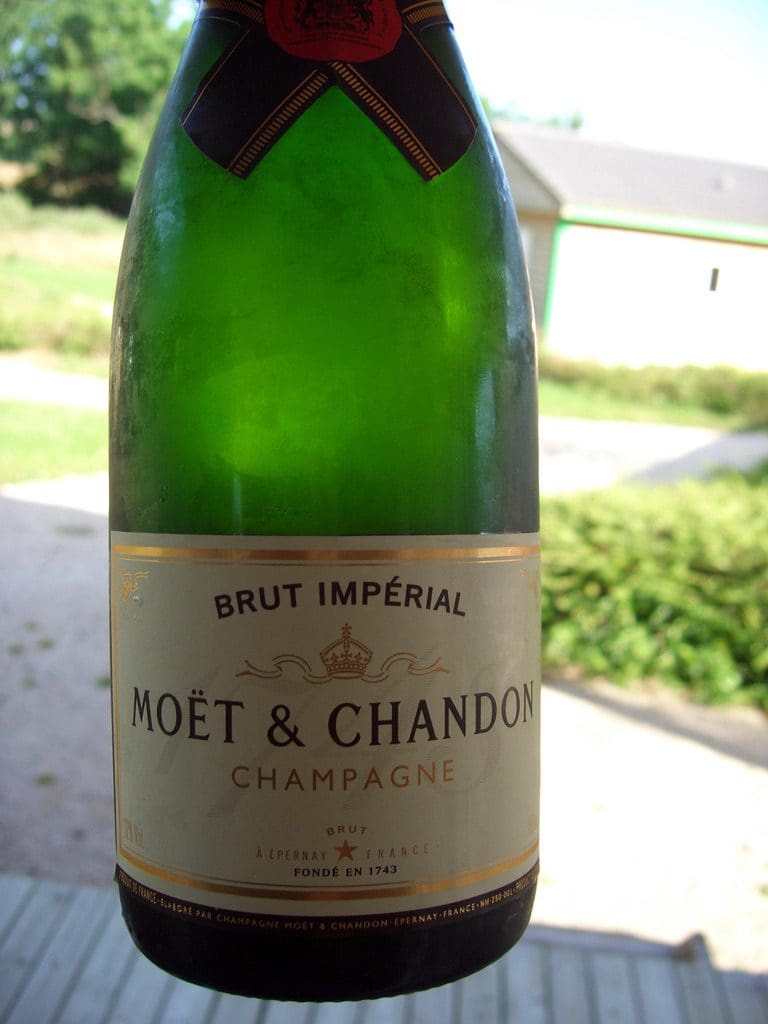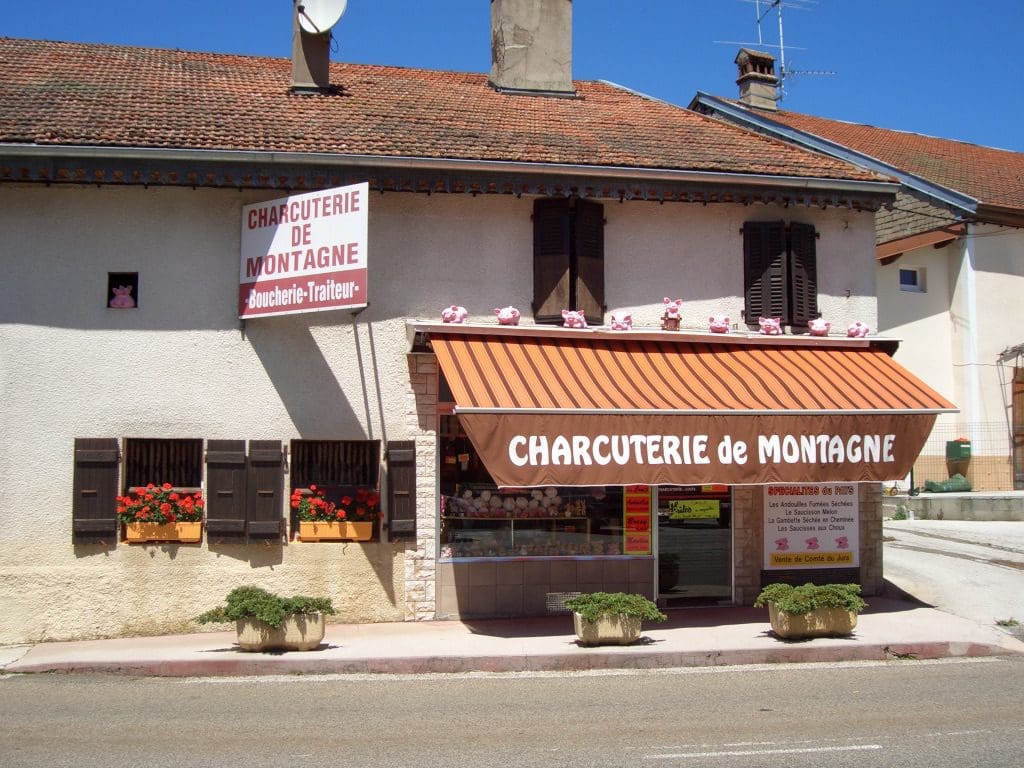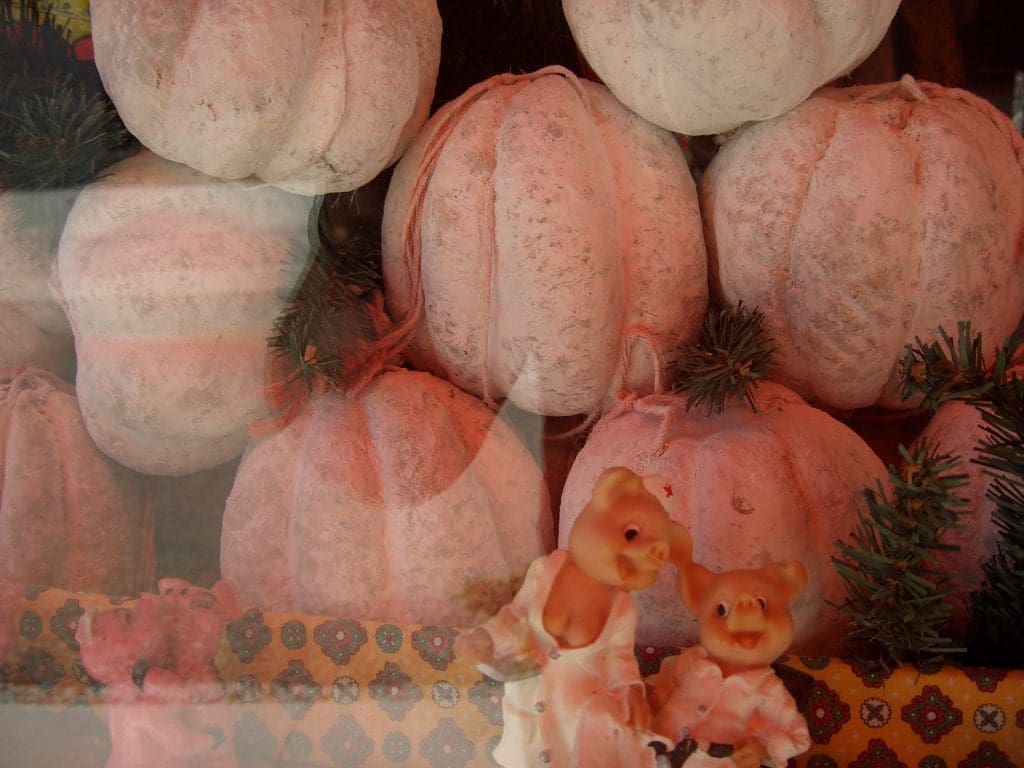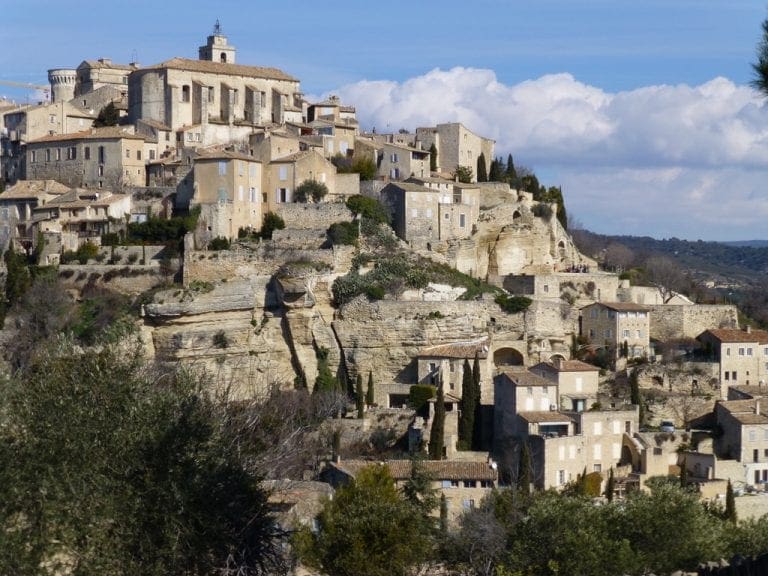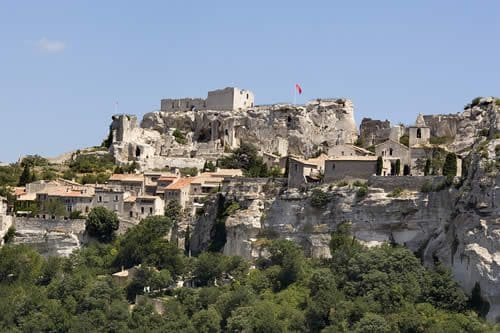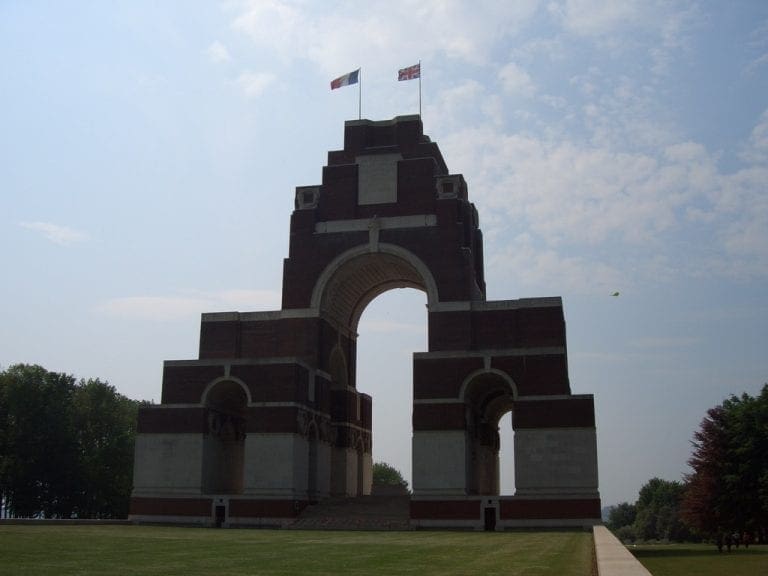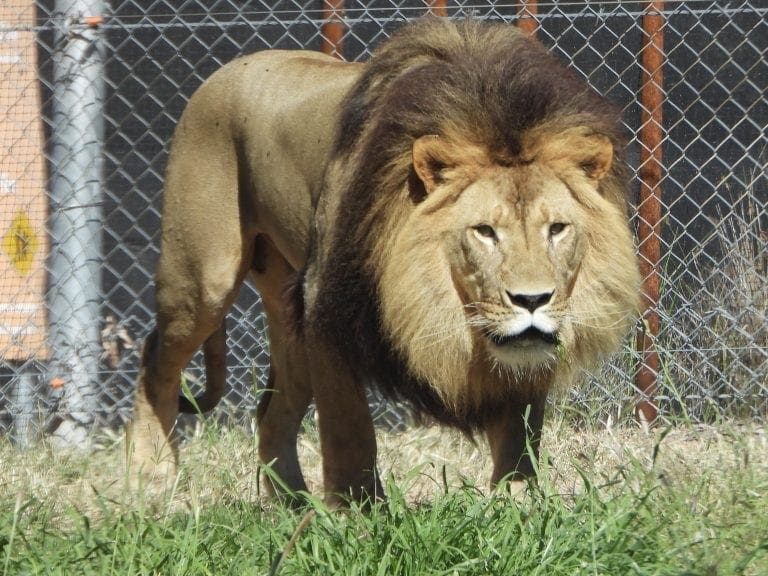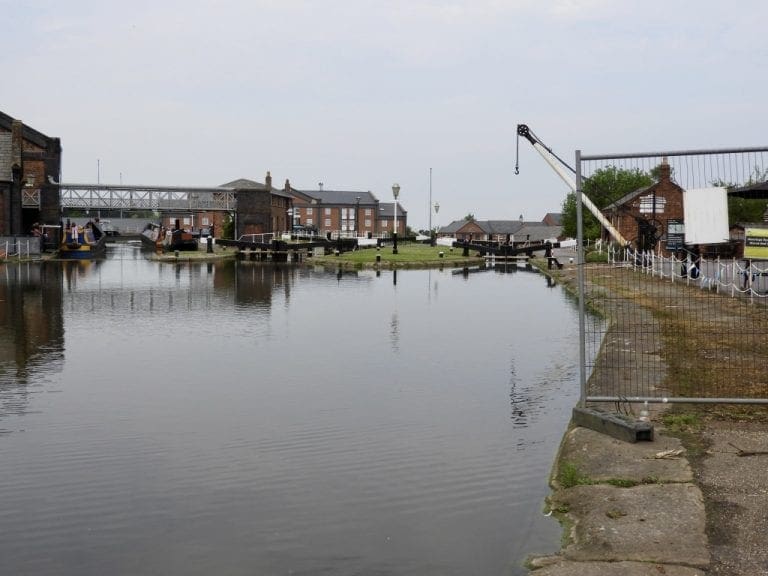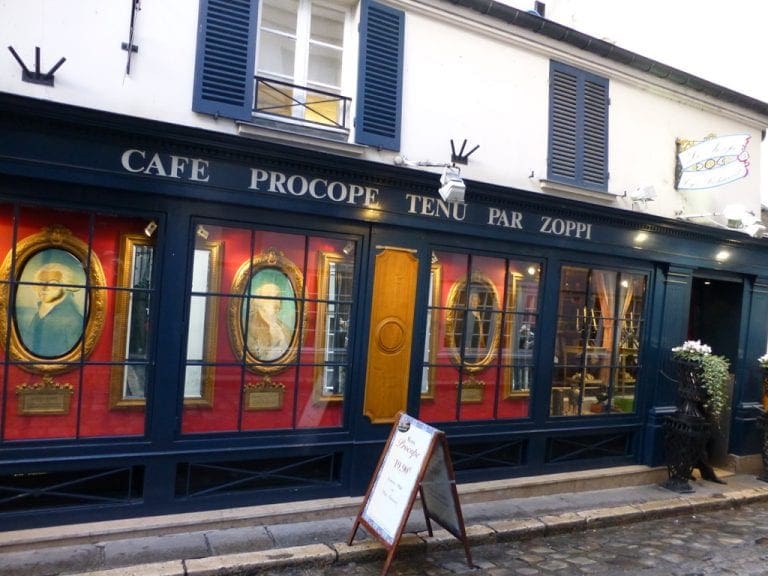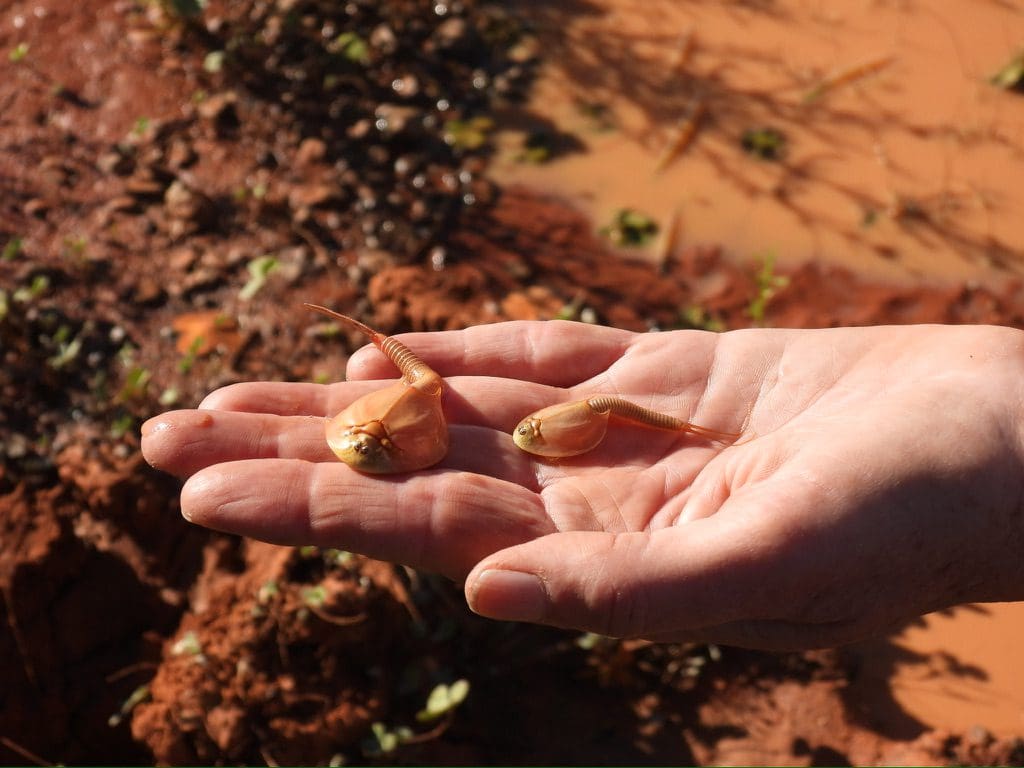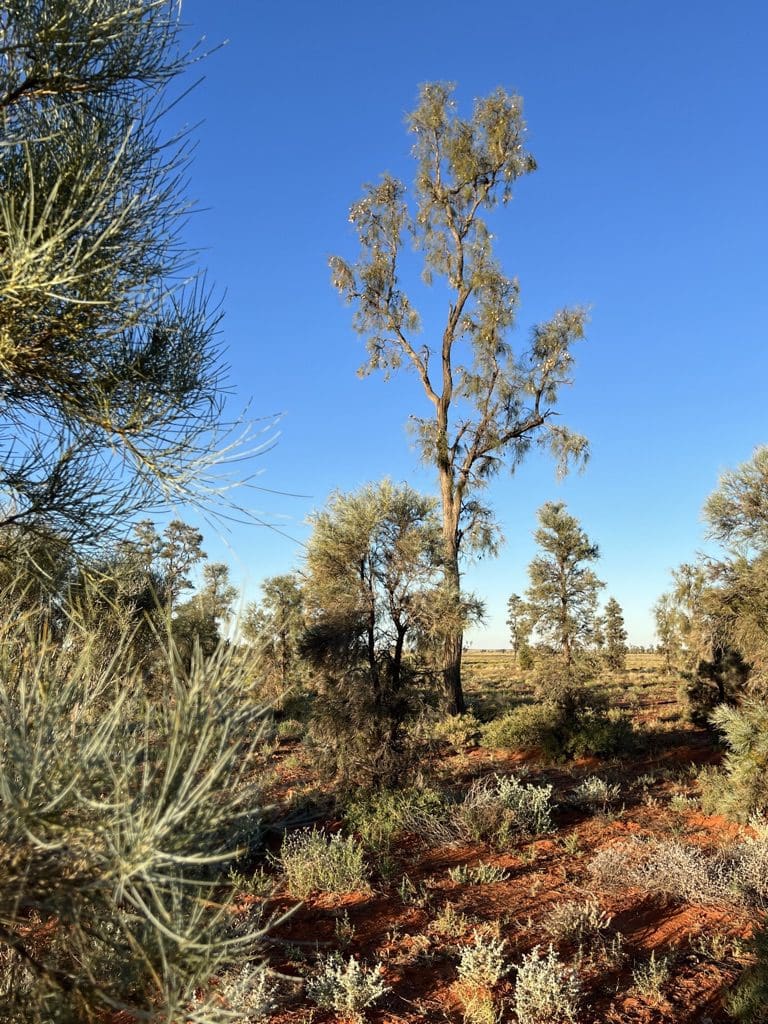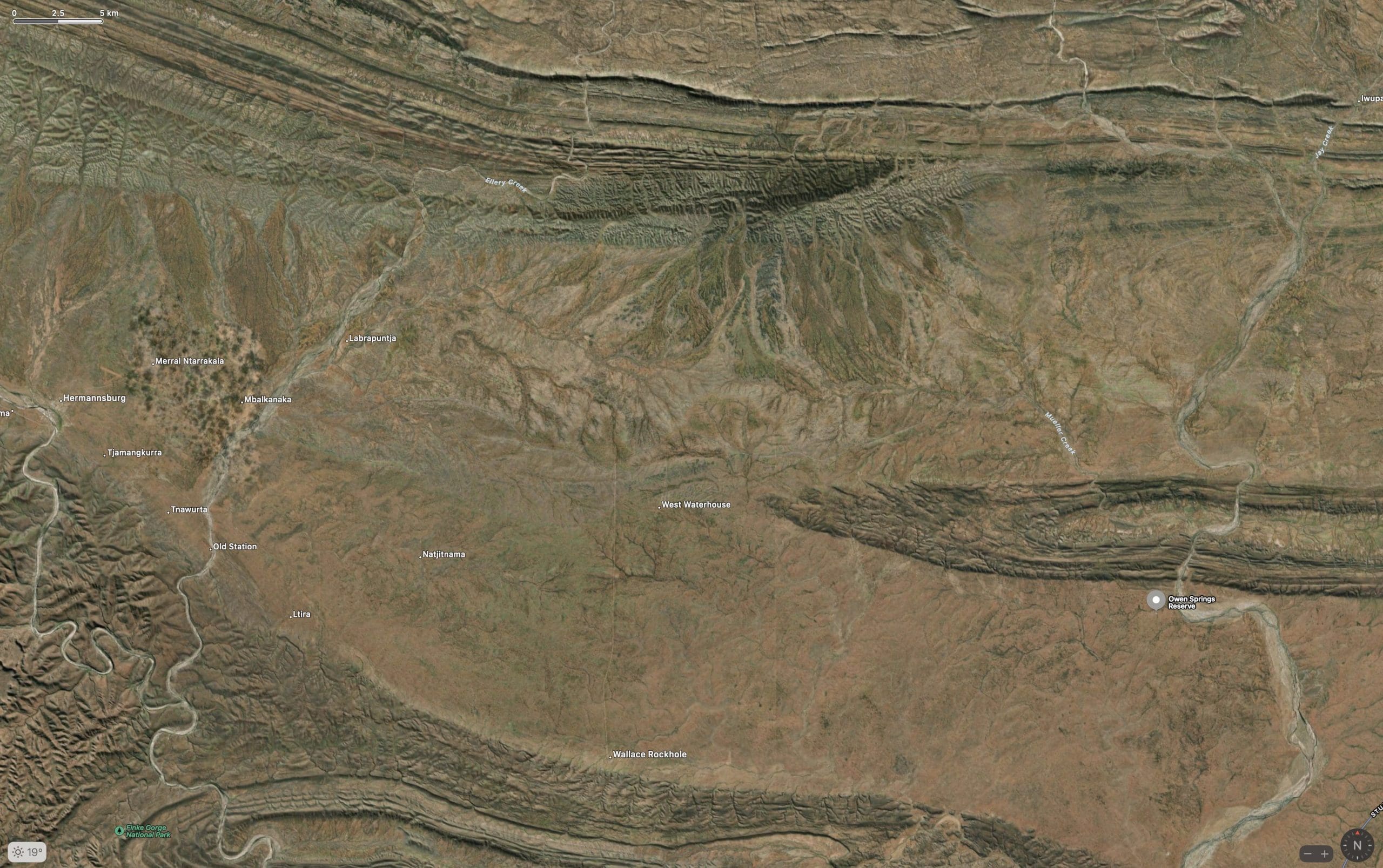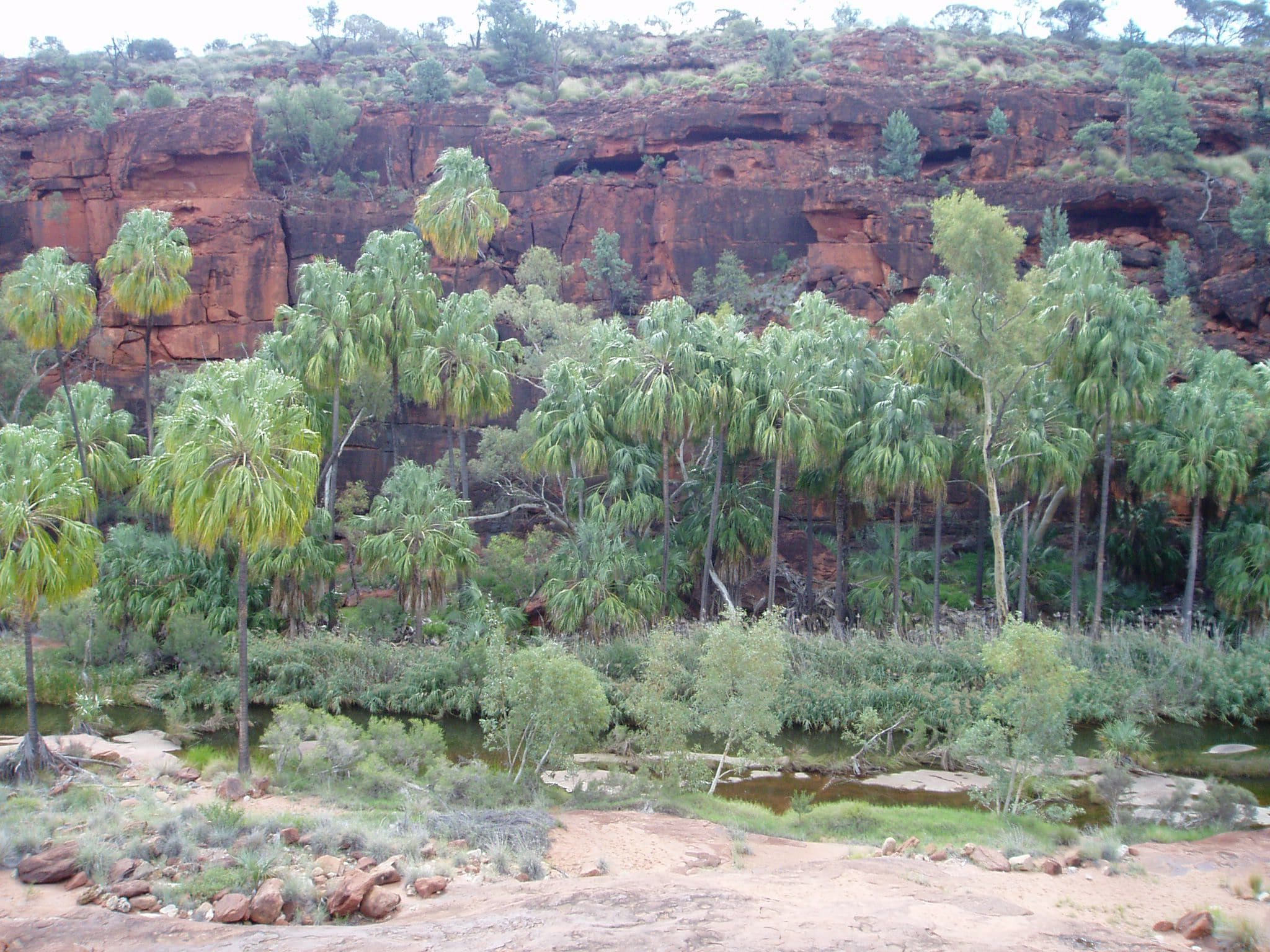Europe 2007 – Burgundy, Tour de France, Alesia
9/7 The last email finished off with torrential rain. It persisted through the morning and we headed off to try to dry out. We booked a cabin 4 hours drive (27 euros in tolls) to the NW at a place called Arnay-le-Duc in the southern part of Cote d’Or (in Burgundy, Bourgogne). As we were leaving the valley, the river at valley bottom was in full flood – almost toping its banks (a change from the crystal stream of yesterday). The waterfalls shooting out from the mountains above were spectacular. We drove through a few thunderstorms along the way. Driving in a thunderstorm on a motorway is scary – mainly because of the spray thrown up by the vehicles. Visibility can be down to a few metres. Some road surfaces are very bad sprayers and others generate no spray. Fortunately, the traffic does slow down (to 110 km/h) and is well behaved.
A little bit about the stress of travel. We have been on the road now for 90 days and the stresses are building up. We find that there are stress factors associated with: toilets – being able to find one when you want one, whether it has paper or is clean ; getting provisions – most days we have to locate a local supermarket before 12:30 pm or after 3 pm (often difficult) and then find the things we want in it (everything is always in a different place); finding fuel – fortunately these are usually in a supermarket, or on tollways; finding electricity to power the cameras and the computer (50% of campgrounds don’t provide power through normal plugs – often forced to plug into the power for hairdryer in the toilet/shower block); finding internet connections (extremely rare) that work consistently (rarer); washing (every machine is different, have incomprehensible instructions and takes a different type of token); finding our way around (the Girl helps a huge amount, but we still have to check her because she is likely to lose her satellites at the crucial moment – she does not like trees, buildings over one floor or mountains anywhere nearby – in small villages there are usually almost no signs, and the Girl is usually shut down); rain (in the tent there is no real way to keep dry, a little overnight is ok – a lot or during the day is not); the constant set of tasks to be done every day; finding a good campsite; having no-one to talk to (except each other); the tent itself is a little small; sleeping in a sleeping bag/sleeping sheet is very confining and uncomfortable as the sheet gets stuck under you and tangled with your feet; the air mattresses are cold as they quickly become the same temp as the ground (we put the thermorests on top as insulation – these are a little narrower than the air mattresses and they scrunch up) the whole combination is bouncy and tries to throw us off and gradually goes down overnight – glad we have one each; even boiling up the water for coffee in the morning has stress (which way is the wind blowing, will it rain, how much gas is left). At first most of these things were an adventure and earlier we wrote about them as such. However, they have now become a little testing. Helen – are we having fun yet?
Having said all that, it is also necessary to write about the kindness of strangers. When we needed help with the car, friendly Poms and Dutch came to push, lend jumper leads and give helpful advice. We had heard about how rude the French were going to be. Well, all the rude French must be elsewhere. We have had nothing but kindly help. We struggle along in our broken, very bad French. They let us go for a while then make some comment in excellent English. Or, offer help with the pronunciation of a word. We make an effort and they help us make it. As drivers, most are very courteous and safe. The worst habit is driving too close behind the car in front. However, we have been amazed at the roundabout behaviour. We often see all the traffic following some lost person around the roundabout from exit to exit reading all the signs then creeping forward 20 metres to the next exit to read those signs. No horn blowing. Just patience. And the occasional French expletive of ‘bon jour’.
10/7 A day to sleep in a dry place on a real bed. Luxury! Many campgrounds have cabins that are set up to sleep 4/6 people in two bedrooms, kitchen, bathroom, toilet, and lounge room. We are spread from one end to the other in this one and the tent is out on the front veranda. It has been drizzling on and off most of the day. We have decided to stay here for a few days as we can access three stages of the Tour reasonably easily from here. Reading, a great luxury. Helen had a run in with the washing machine which ate the powder and refused to start. This campground does not provide WIFI Internet access though he does have it behind his desk in the office. We think that providing free WIFI Internet (as the place at Chamonix did) will soon be a much needed distinguishing feature in all accommodation – including campgrounds.
11/7 It turns out that the place we are staying (Arnay-le-Duc which Geoff is calling Arney the duck to distinguish it for Arny the gov) is in a very good place to see the Tour. Today, a stage finishes just north and the next two days have stages passing west and then east. Off to Joigny (pronounced jwanee – rhymes with Swanee how I love you) to see the finish of stage 4 of the Tour. A long day for us – much longer for the riders. After a 1hr 40min drive, we arrived at Joingy at 11am with hopes of a lunch. This wish disappeared when we saw that the crowds were already taking up positions and the restaurants were back where we parked the car a kilometre away. So Geoff went back for the chairs and we installed ourselves at 125 metres from the finish. The race actually begins at 1pm and was due to finish at 5pm (It actually finished at about 5.45). The crowd gradually built up until it was 5-6 deep for at least 500 metres on either side of the straight barricaded road (that is at least 5,000 people and not a dunny in sight – they clearly had not seen Kenny) and was entertained by people handing out free samples from the promoters – coffee, yellow caps(bank), white hats(skoda cars), shopping bags, red checked hats, hot chocolate, newspapers, water (we got 5 bottles each), cream cheese (yuk). We had placed ourselves next to a Gendarme possie (ok) and next to a loud speaker (mistake) where we could also see the big TV screen. The people handing out water did a great job – shame about the absence of toilets. At about two hours to go, the commentary (in French) went into overdrive. Like a horse racing commentary for the next 2 hours. There had been a breakaway which had been hauled in with about 12 km to go. We could see the action on the big TV screen. The best part was the shots of the beautiful countryside (parts that have to be excluded in the ½ hour SBS coverage). At 1 hour to go, the ‘caravane’ came through – all the sponsors floats. At 10 km to go, the caravane finally cleared the road (it had taken it almost an hour to pass). We were watching the TV and could see the cyclists at 2 km to go. Then they were in view and past. We saw them for no more than 2 seconds. Hard to focus on any person. A blur or whir of colour and faces and bikes. All that for 2 seconds. We were stunned. Gathered ourselves and chairs and went back to the car. In our stunned mullet state, we left our Aussie flag behind hanging on the loud speaker. We joined the very slow line of departing traffic and jumped on the tollway back to the Duck. Helen made a very welcome omelette and we drank too much rose to recover. Could not imagine having to ride the bloody thing, it was hard enough just to stand on the side of the road. We will not watch another sprint finish.
Helen – I am stuffed! Really didn’t do much today but we are both had it. We didn’t get home till 8 p.m. and we are still trying to dry out the tent which is taking on a decidedly musty/mildew smell. I know that I saw the winner of today’s stage go past. He was just in front with 125m to go. He was wearing a green jersey. The other 170 odd went past in a blur and a few straggled in a few minutes later. Still don’t know who won. The crowd was extremely well behaved and the final sprint roadway was kept meticulously clean of any rubbish etc despite several tonnes of advertising bits and pieces being thrown/handed out in our area during the few hours before the finish. On arrival, we went for a walk around behind the finish line area. What an education. It was a media/hospitality area on wheels – huge semi trailers that were specially built and folded out on both sides to form sponsors entertainment areas while the media ones went up on lifts so they were above the crowd. Along side were portable kitchens that were parked along the river cooking food for the hundreds of TV/radio people needed to broadcast this circus around the world. When we arrived, the main street was already blocked off and raised platforms had been erected for TV cameras about every 50m. The cables connecting them back to the media centre ran along the ground next to the barrier. There must have been kilometres of the stuff. I have no doubt that by now (almost 10pm) it has been dismantled and will be repositioned during the night ready for tomorrow. There must be an army of roadies constantly building and dismantling for the duration of the race. The logistics needed to run a successful Tour is mind boggling. e.g. the thousands that make up this circus have to sleep somewhere tonight and be ready to hit the road early tomorrow morning – and this goes on for three weeks over thousands of kilometres. Thank heavens the weather seems to be taking a turn for the better as sun is forecast for the next few days.
12/7 Today we had planned to watch the Tour where it passed to the West of us. We woke groggy and decided that it was too much for us. So we have had a day reading and doing nothing. If we were exhausted by the day at Joigny, what would it be like for the riders in the Tour? We spent some time today trying to find an internet access in Arnay-le-Duc, to no avail. The signs say that it is an Internet town. That must mean it is cable because there was not a single WIFI to be found. And not Internet café that we could find.
Geoff finished reading Shirley Hazzard’s ‘The Great Fire’, an excellent book. A very mature love story written about changing times in 1948.
13/7 We went to see another stage of the Tour. We chose a place where we could see a sprint and where they would have to climb up a 4th category slope (very low). They were due to go through at 2pm and the caravanne earlier at 12:15pm. We were not sure when the roads would be closed and got to our chosen spot at 9:15 am. Sure enough the roads were closed by 9:45 am. We were among scattered groups of people along the road from the sprint finish. Cars parked about every 10 metres along the road just past the little village of Bligny-sur-ouche. A lovely spot in the shade. The banner across the road for the sprint finish was 200 metres back down the road. The caravanne came past and threw small advertising gimmicks at our feet. Helen and Geoff stood on opposite sides of the road to increase our chances. Trying to get loot – hats, key rings, coffee, sweats, bags, playing cards. It was very hit and miss whether we got anything. A real performance, begging on the side of the road for loot that we did not really want. After the caravanne had passed, we waited in the shade for the riders to appear. Suddenly, without warning, at 2:12, a bunch of cars came through packed around a single rider. We were told he was 12 minutes ahead of the rest. Suddenly, a couple of helicopters, then riders and at 2:27, the peleton came through, all together in a long colourful, sinuous snake. Followed by all the team cars and officials. These took longer to go past than the peleton. There looked to be at least two cars per team – one with bikes and the other with wheels. There were no laggards and the ‘Fin de course’ car was right at the back of the team cars. That meant the road was open. Within minutes, by the time we had put the chairs in the car, the banner for the sprint was down roadies working like crazy to dismantle barricades.
Standing on the road side was much much better than the day at the finish at Joingy which had left us disoriented for a day afterwards. However, there is not much to see. You see much more on the TV where you can see the race develop, see the breakaway and it being hauled in, see the working of the peleton and the teams, see the countryside that it is passing through and the signs and artwork on the road and hill side. Actually, on the road side, you see 10 seconds of colour and usually can’t make out anything. We have no TV or radio. The race will be finished by the time we write this. We don’t know if that sole rider was caught. (We found out the next day that he was and came last almost 4 minutes behind the rest who mainly finished together in a bunch.)
We have decided to abandon the Tour and make our way to the Jura. We will buy a DVD of this year’s Tour so that we will know what it was like. A repeat of either the noise of the finish or the standing at road-side are really our only options and repeating them is not worthwhile. We will move on.
We have had a bottle of champagne for tea. Moet and Chandon of course. Sorry Robyn, this is a excellent drop the like of which they cannot make in Oz. We have the Pinot Noir grape and the people who know what to do, but we cannot make that wine. We’ve had a very philosophical discussion about produce (we have better fresh fruit & veg but our cheese would not even score a zero out of ten here). Helen likes the red wine here. It is milder than Geoff’s favourite Shiraz.
14/7 Bastille Day – the major French holiday. A very strange day. As we were leaving the Campground at Arnay-le-Duc Helen was sent back to clean the shower by the very rude campground owner – who went into the blank impassive rude arrogant French male shrug immediately. Helen white with rage. ‘Eet is such a leetle theeng, madam. Whay would you be so upset.’ We could not get away fast enough. Anyway, a moderate drive of 2 ½ hours. The toll-ways were crowded with French on holidays. We had intended to stay on a lake-side campground in the Jura. It was a hot day of 33C. That campground had no shade and was crowded. Fortunately, the office was shut for lunch, so we went to lunch (three courses at ‘Sapins et du Lac’) to consider our options. We have ended up in a very nice small shaded park just north west of Pontalier in Jura. Jura abuts Switzerland to the east and looks similar (but not as ruthlessly tidy). Forested rounded hills separating flat cultivated valleys. Where exposed the strata are thick and gently dipping. Jurassic era (and its Park) is named after a bunch of strata somewhere nearby. Helen’s hay fever began again with a vengeance.
As we were going to bed at nightfall (we usually do this as we have no light), the French and locals were heading off to the Bastille celebrations: fireworks, singer, accordion that went till 3am and we could hear clearly 2km away. At 12 midnight, the clock struck 10, pause 1, pause then the remaining 2. This was not correct, so after a short pause a continuous 12 was rung again on the same bell set. Then to prove it was no mistake was rung again. Fastidious French.
15/7 Another hot day of 35C after a very cool clear night. We went first to yet another cheese display. At Metabief (and the rest of this region) they make cheese in three ways: Comte which is heated at 55.5C and compressed into 40kg cheeses; mobier which is heated to 38C and has a sprinkle of powdered charcoal in the middle; and mont d’or which is made only in the winter (when there is no grass as the region is covered in snow so the cows are eating hay) which is a soft cheese held in a wood bark shell and is eaten with a spoon. We think there is considerable effort into keeping these traditions going especially by entrenched regulation and by limit of production.
From there we went to the Roman battle site of Alesia (which is not at Alesia where the monument is but at a place called Chaux-des-Crotenay). This was where Caesar comprehensively defeated the Gauls in 52BC. The site has very deep gorges on two sides of a triangle. The Gauls (~ 80,000) were in the centre in what they thought was an impregnable position because of the steep gorges. Caesar (with ~60,000) used the surrounding mountains on the other side of the gorges to besiege them and to defend himself from the relief force (~200,000). The ensuing battle cost 200,000 dead in an afternoon and saw Gaul (now France) under Roman rule for about 500 years. We were very pleased to find it. There is a very, very tiny museum (locked) in the mayor’s office and no signposts or monuments. The French don’t like to own up to this resounding defeat. They even have the monuments 200 km to the west in flat land.
From there we drove through a fir forest (Route de Sapins) along a sealed logging road with well-sited picnic tables. The French take their leisure very seriously.
Helen – Today I realised that we have been here a considerable period of time. The pasture has grown enough for them to be cutting, drying and baling it. If conditions are right they will get a second cutting before winter sets in. The cows are now out in the pasture as well. For the first month it was strange to drive through a cheese area and not see a cow – they were still in the barns. The crops that were just a few centimetres high are now flowering – sunflowers, corn, lots of different grains, some of which is harvested for grain while other fields are being cut for hay. In early June not very much of the fruit and veg on sale came from France. Now the majority is French grown. The cherries that we ate by the kilo are almost finished but apricots, nectarines, peaches are now everywhere for about $3 a kilo. Melons (similar to rock melon) are also plentiful and have a wonderful flavour. Sea food is plentiful, even away from the coast. There are few specialist fish shops or butcher shops. They are incorporated (as specialist sections) in the supermarkets. You don’t find the large fridge sections full of already cut meat here. Buying meat requires a far greater knowledge of a beast than I have. Not only do you have to know the cuts you can choose from different varieties of cattle. You are free (in fact expected) to choose which end/piece of meat you want. It makes it a little difficult for moi trying to get a piece of meat for steak and salad. However, it is interesting watching the time taken and the conversation necessary to do the household shopping. Their steak is indeed very tender.
